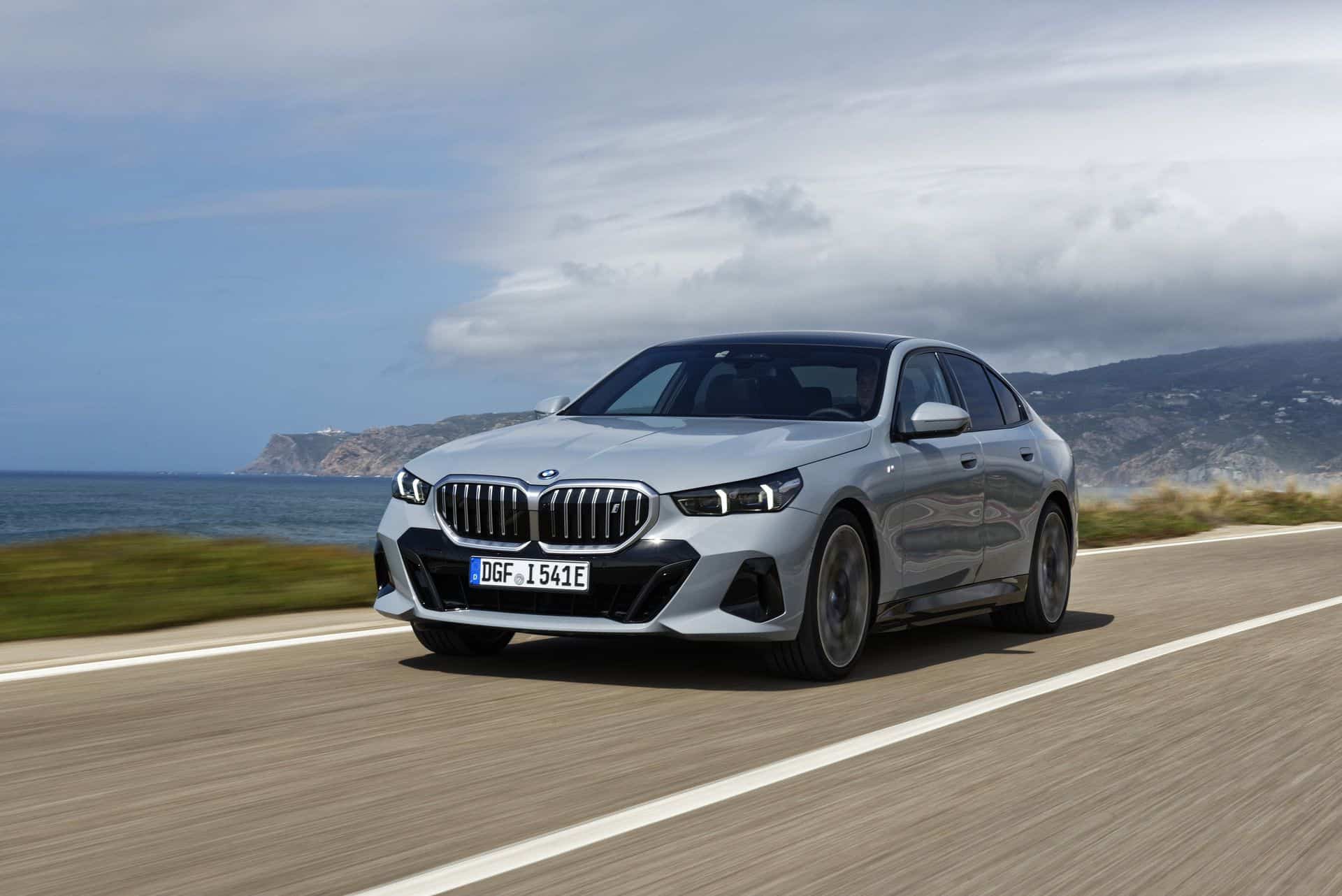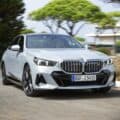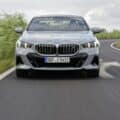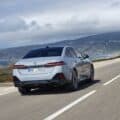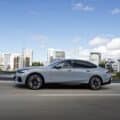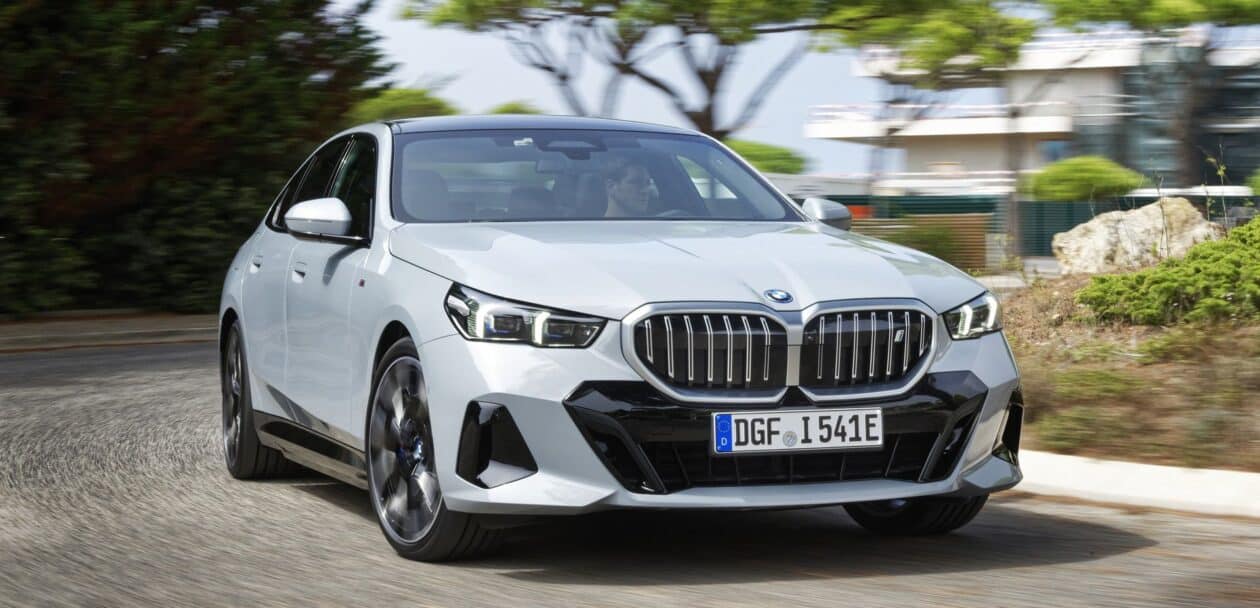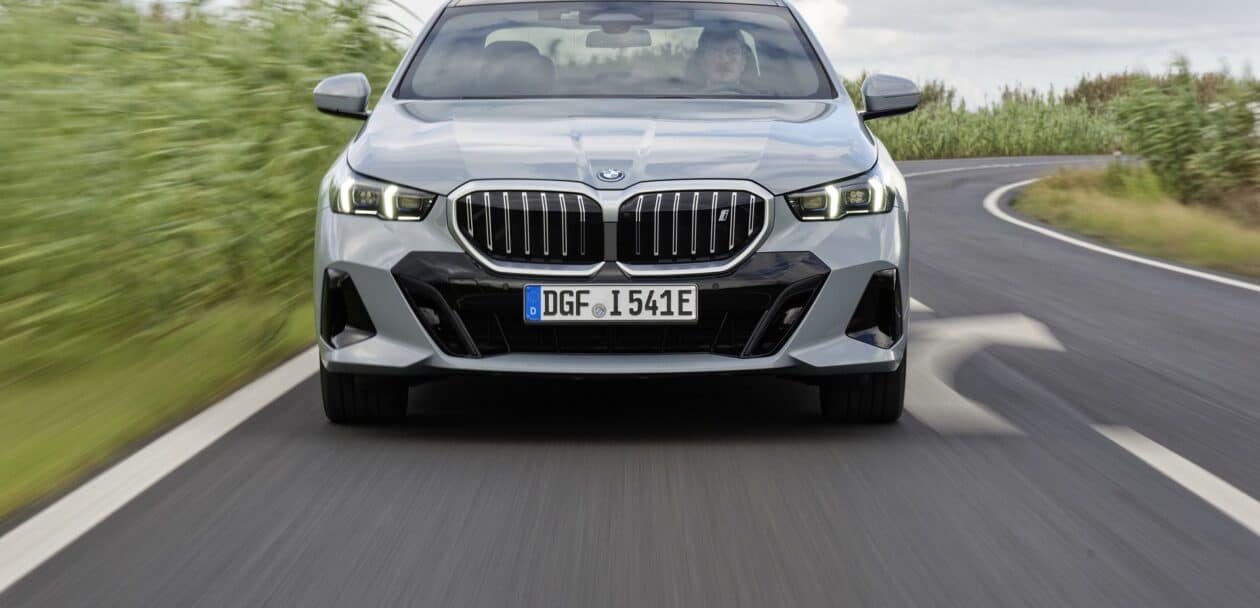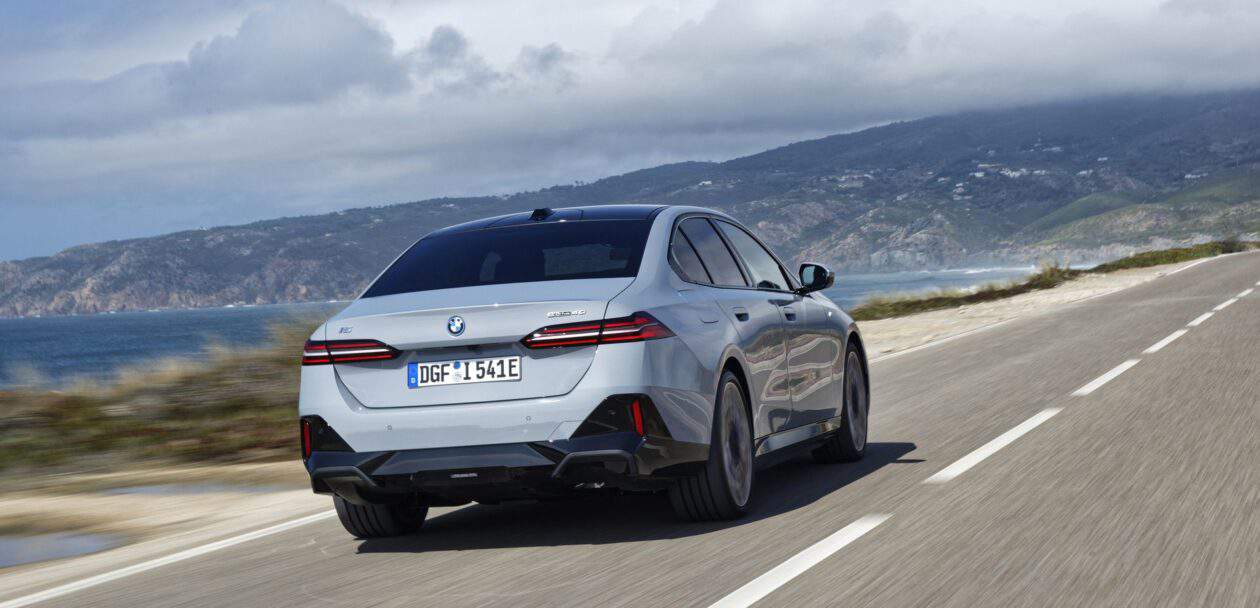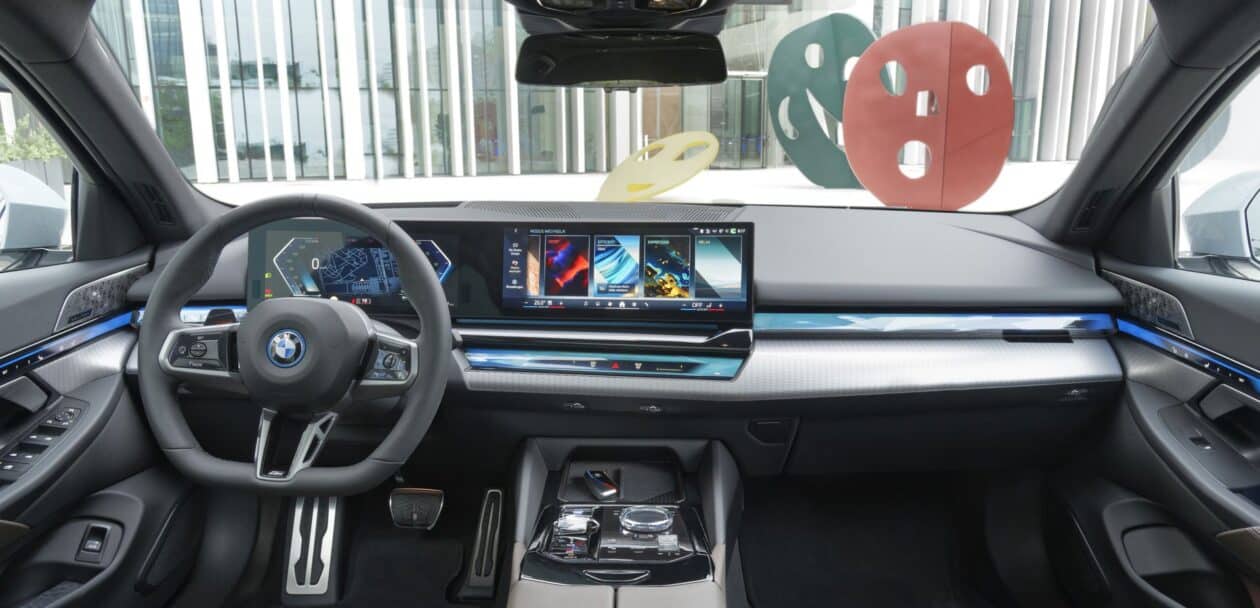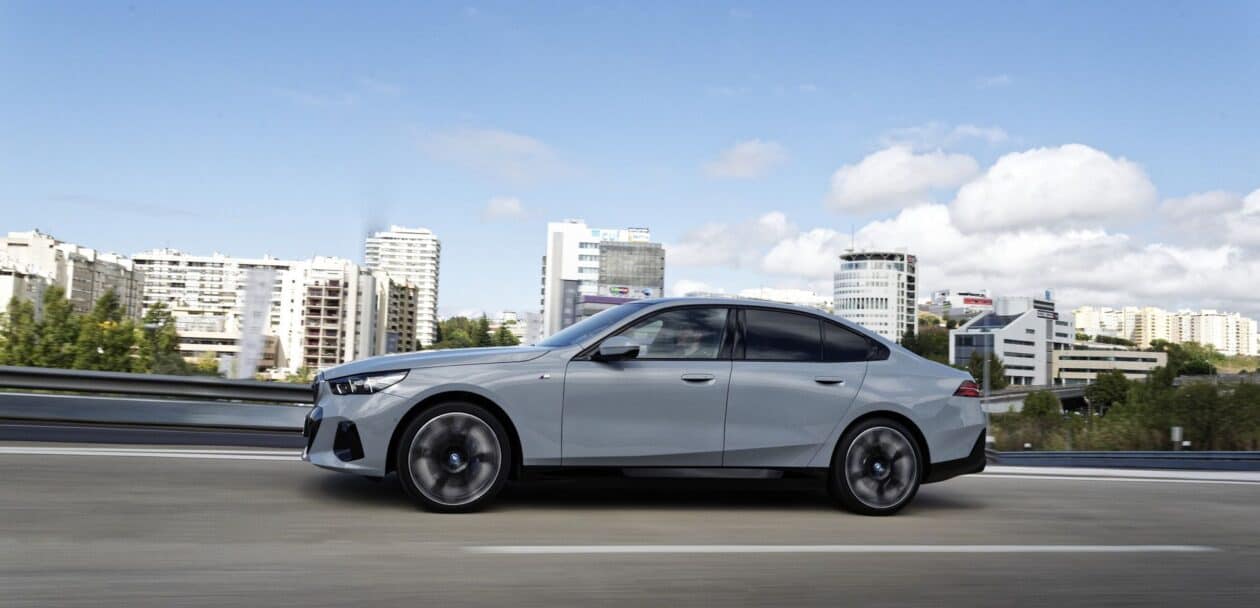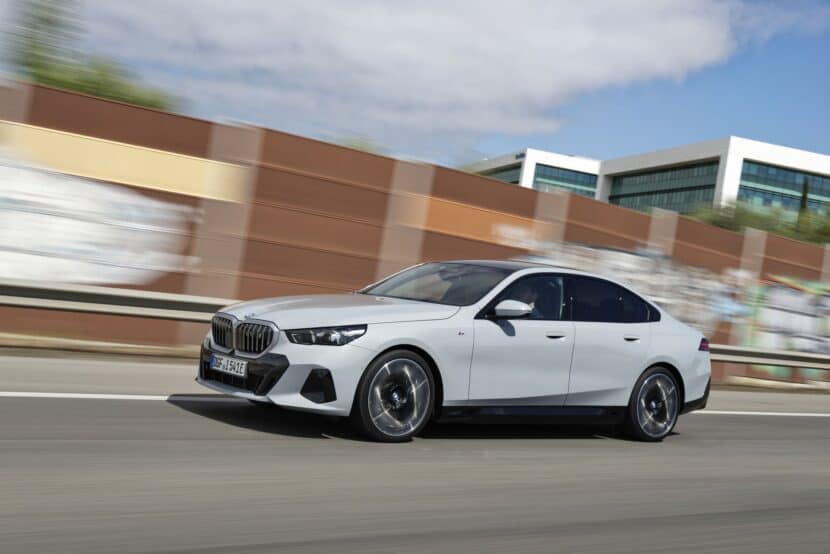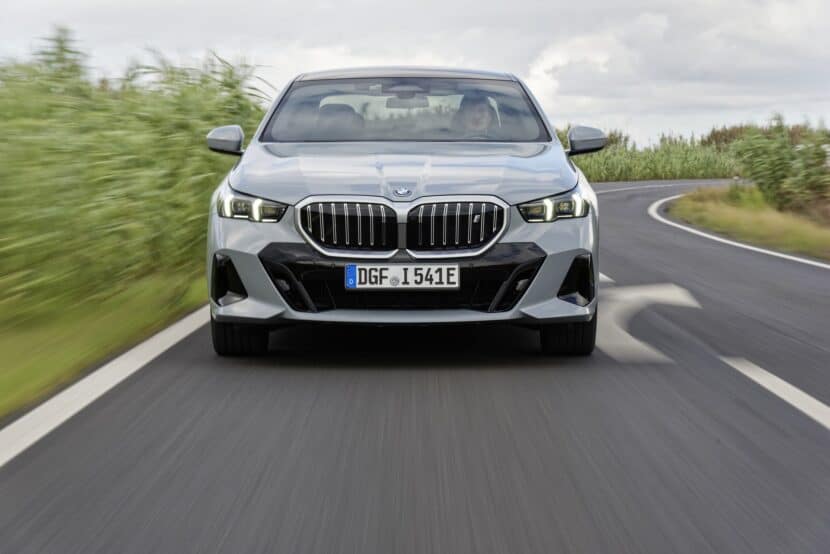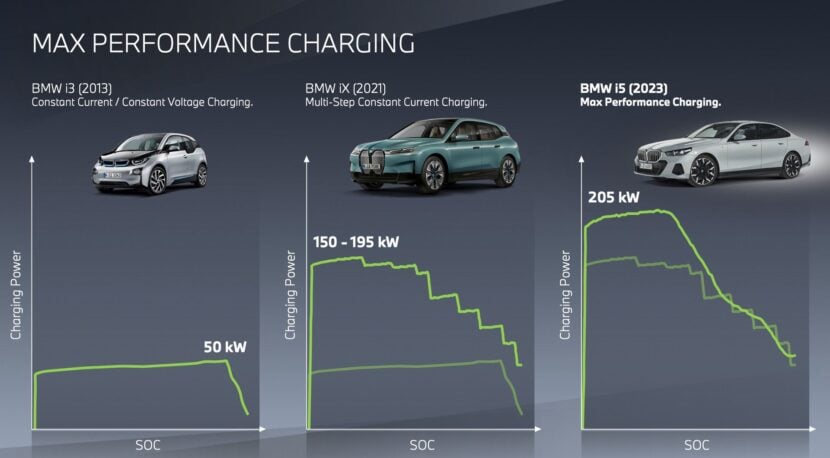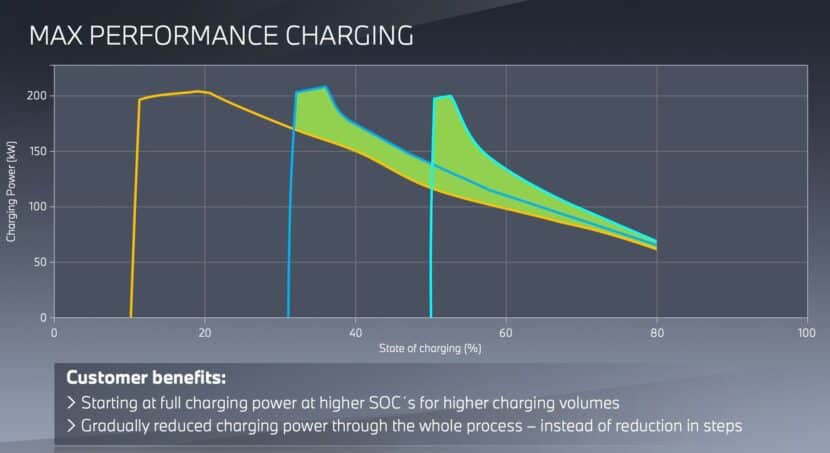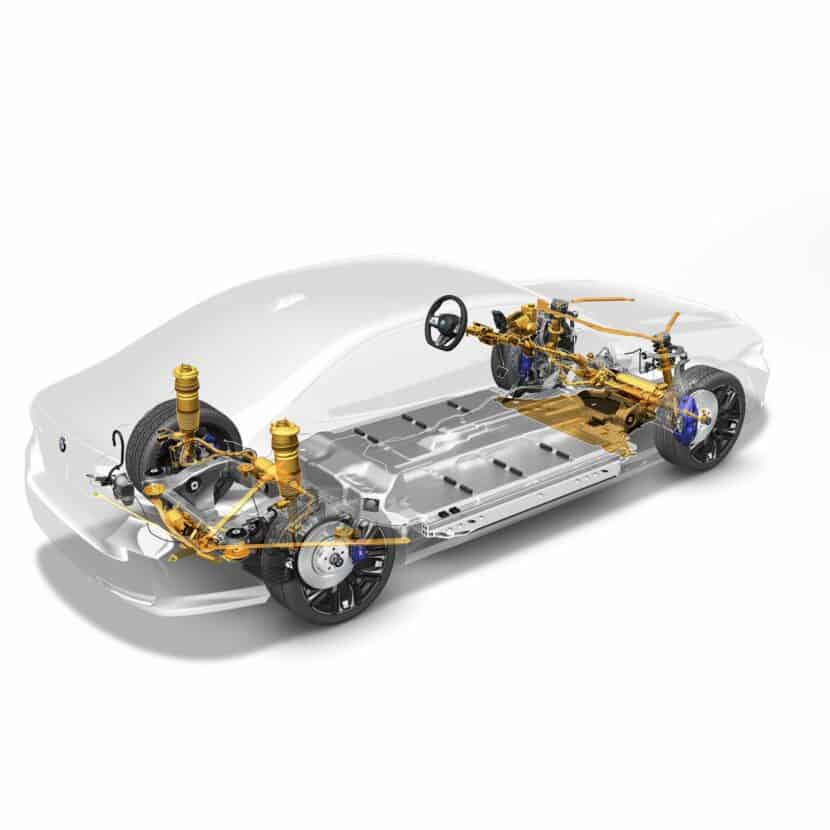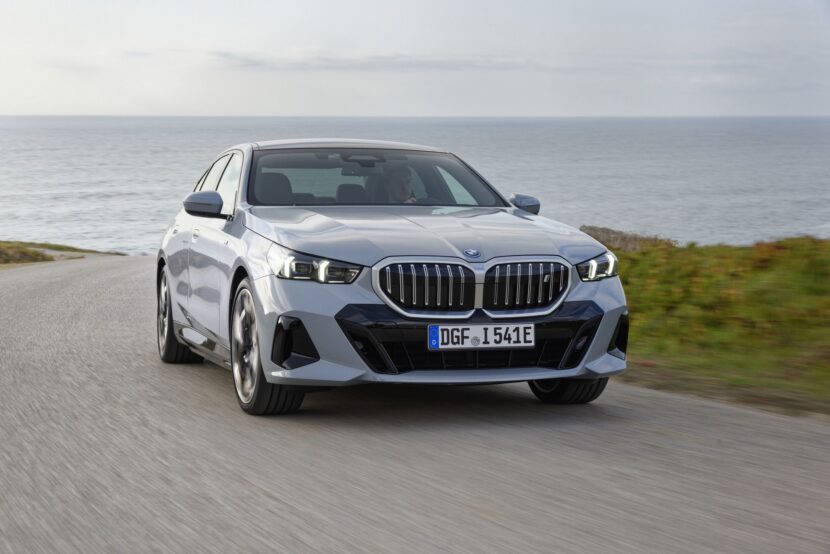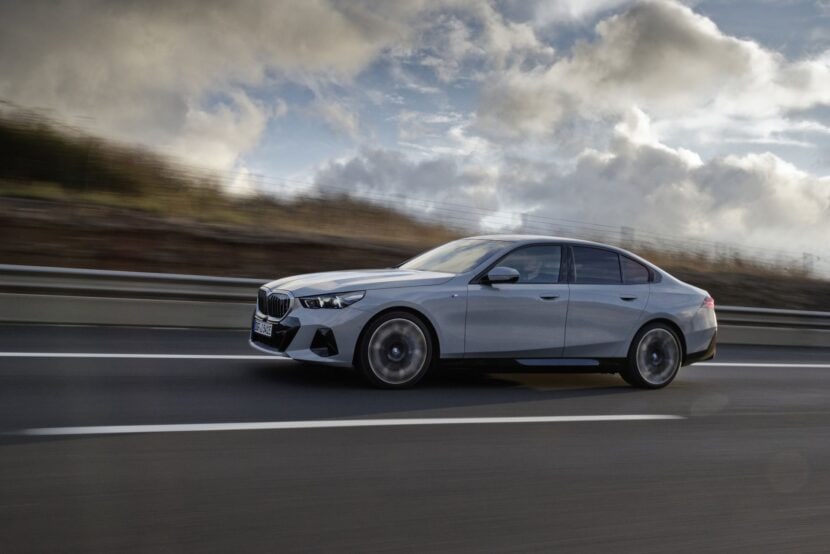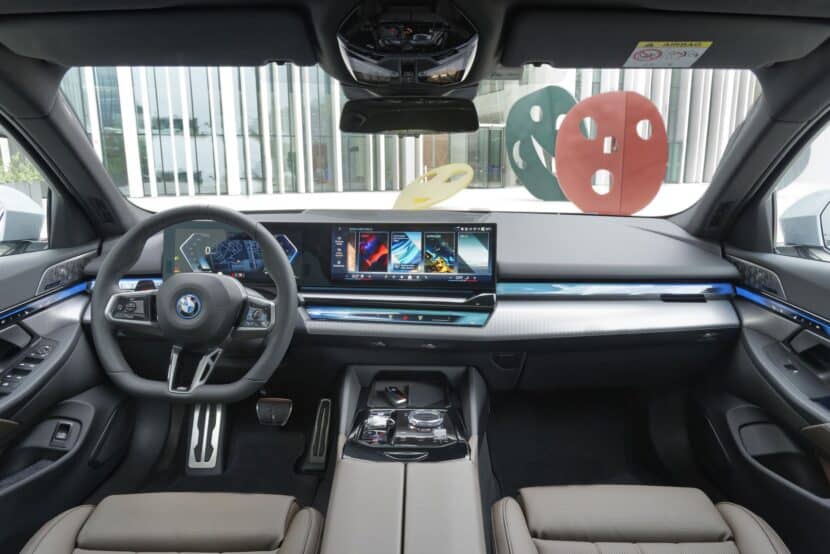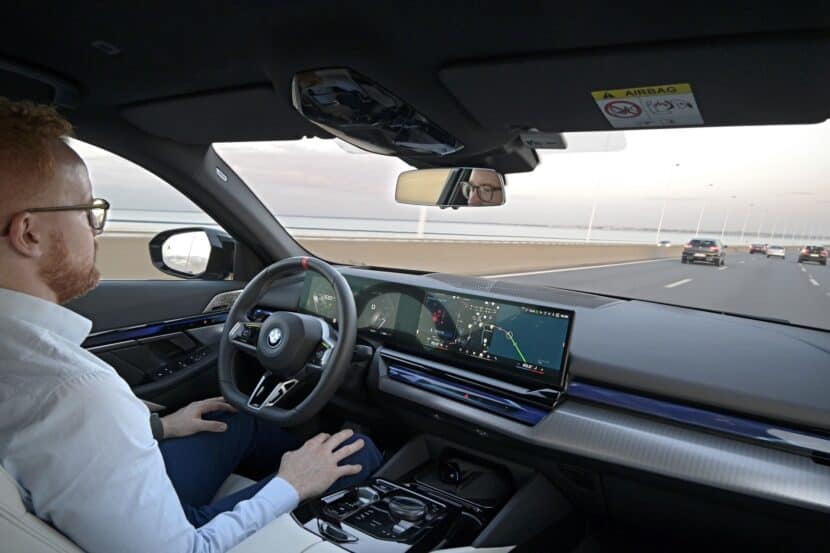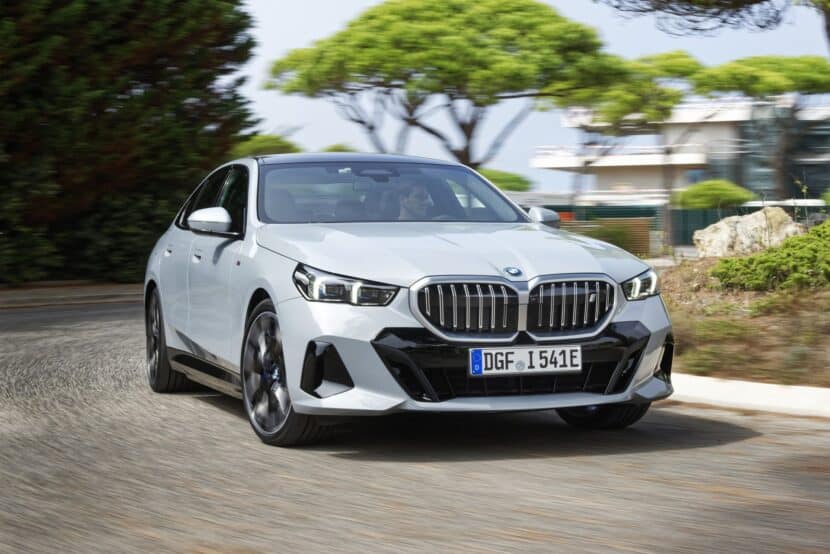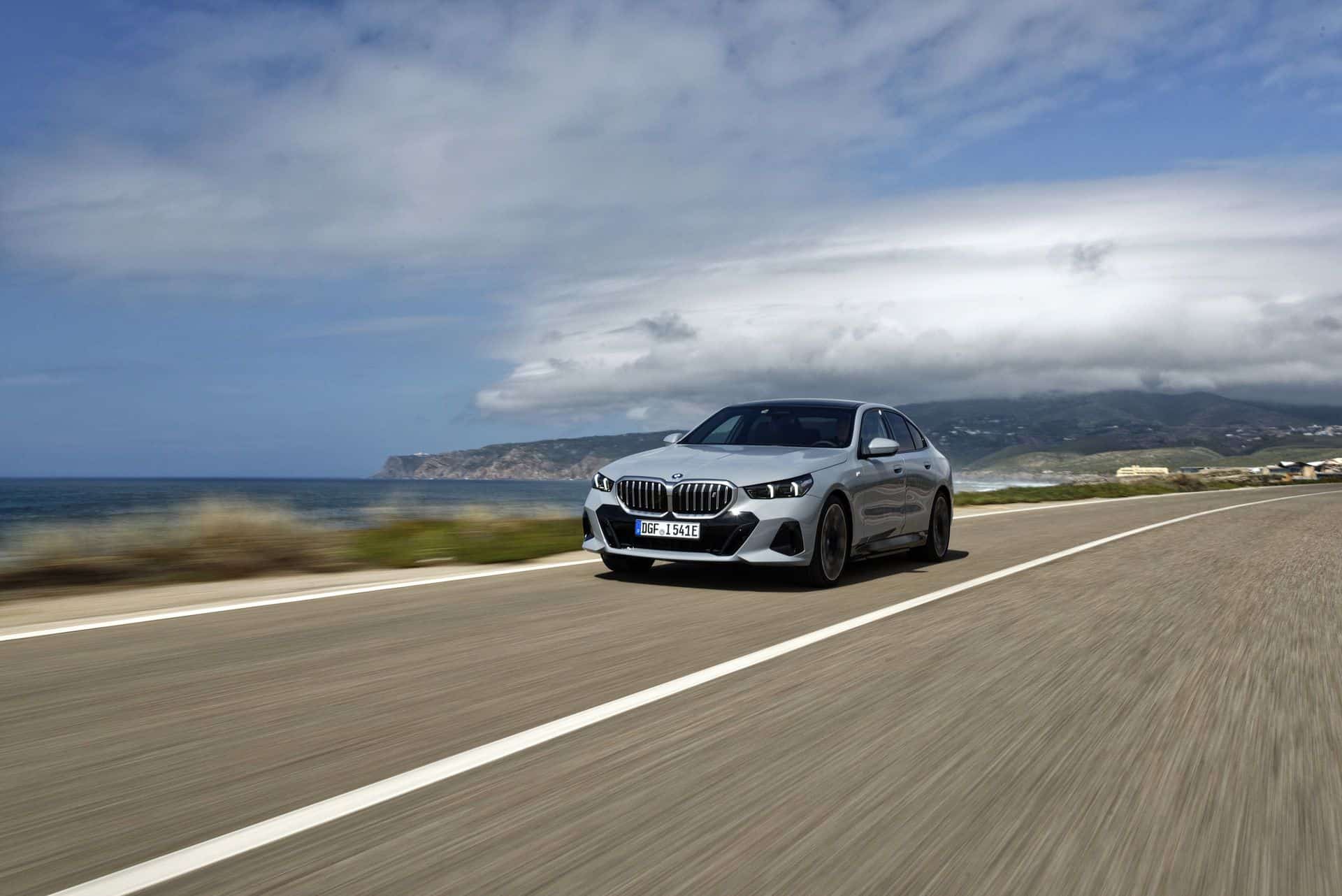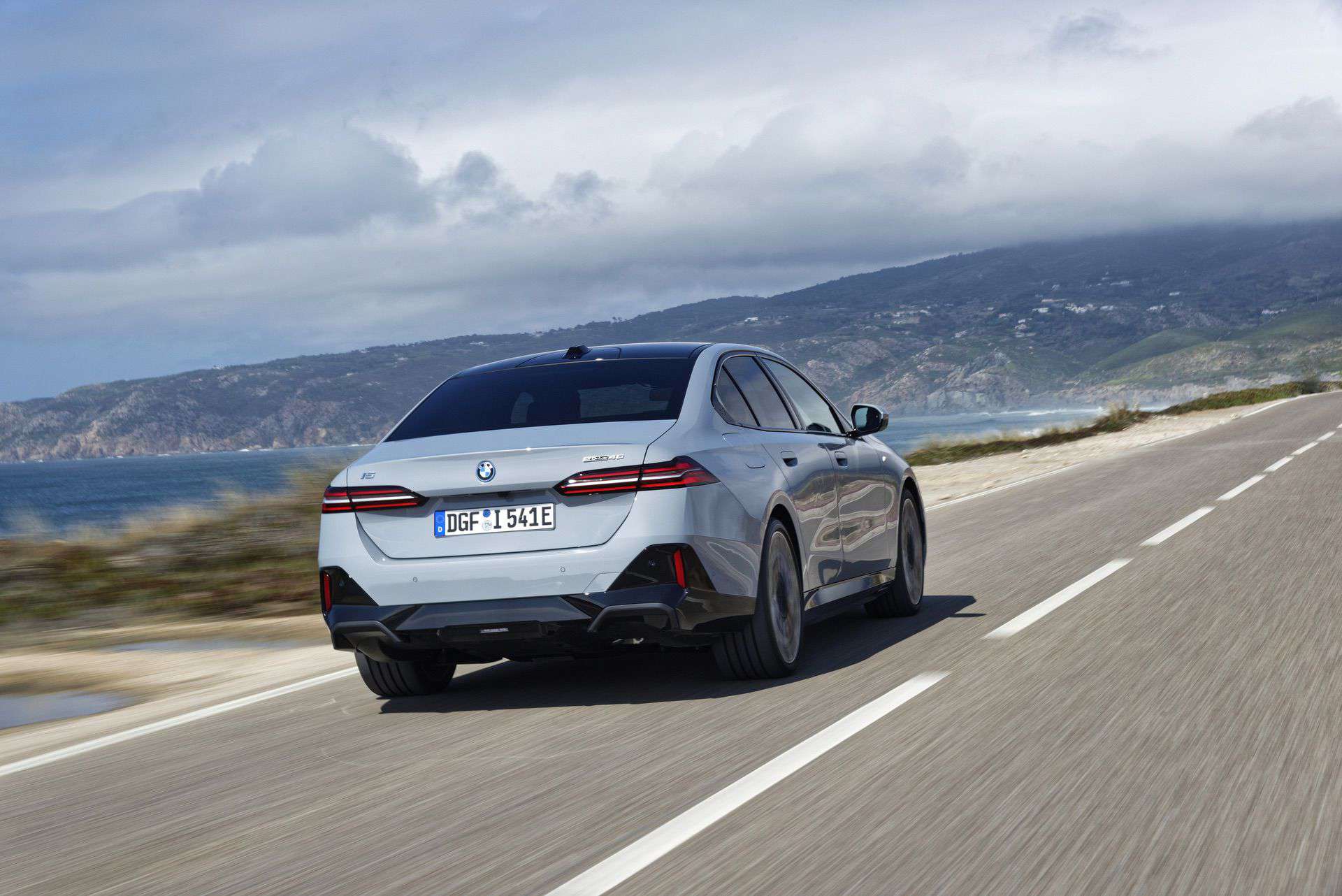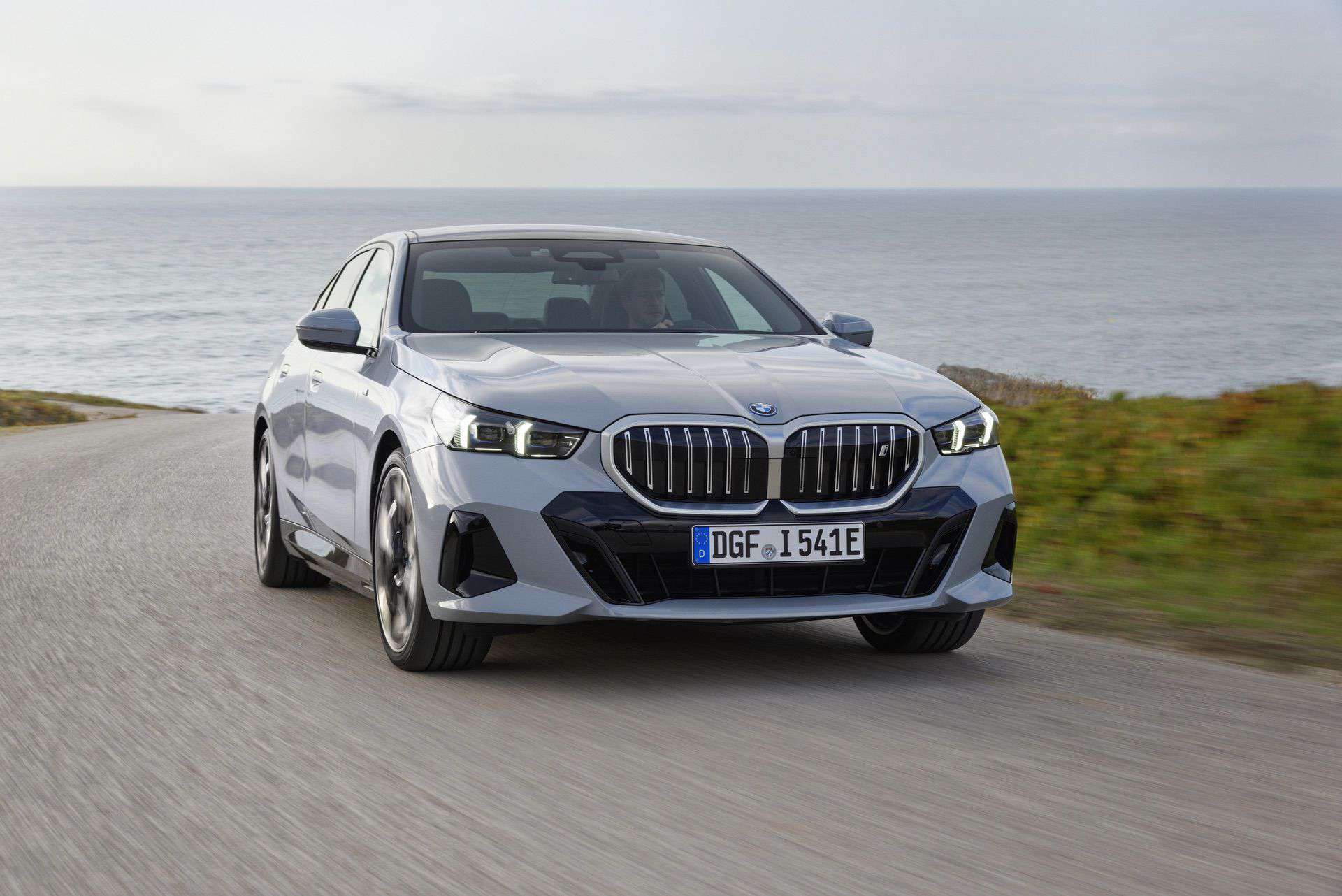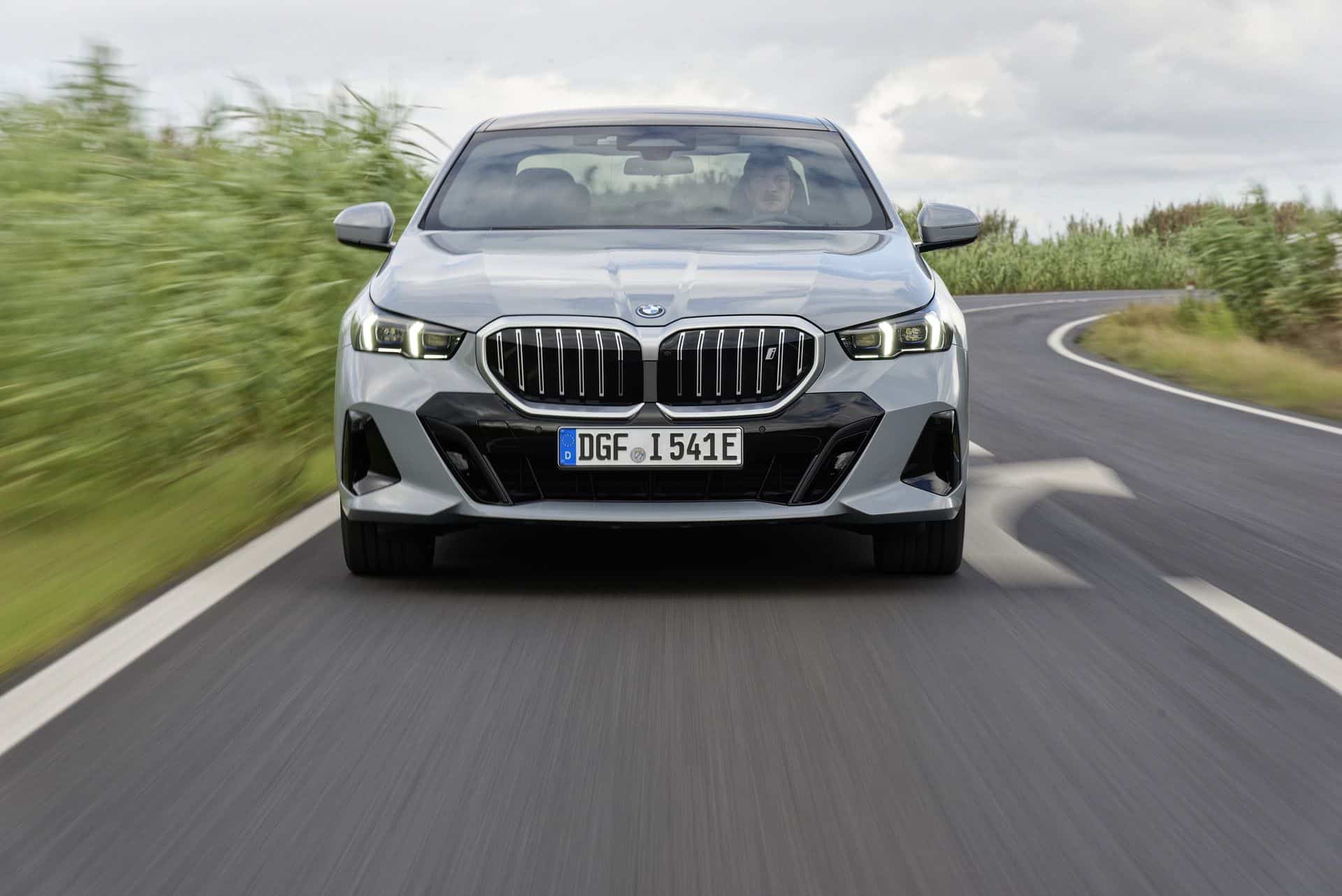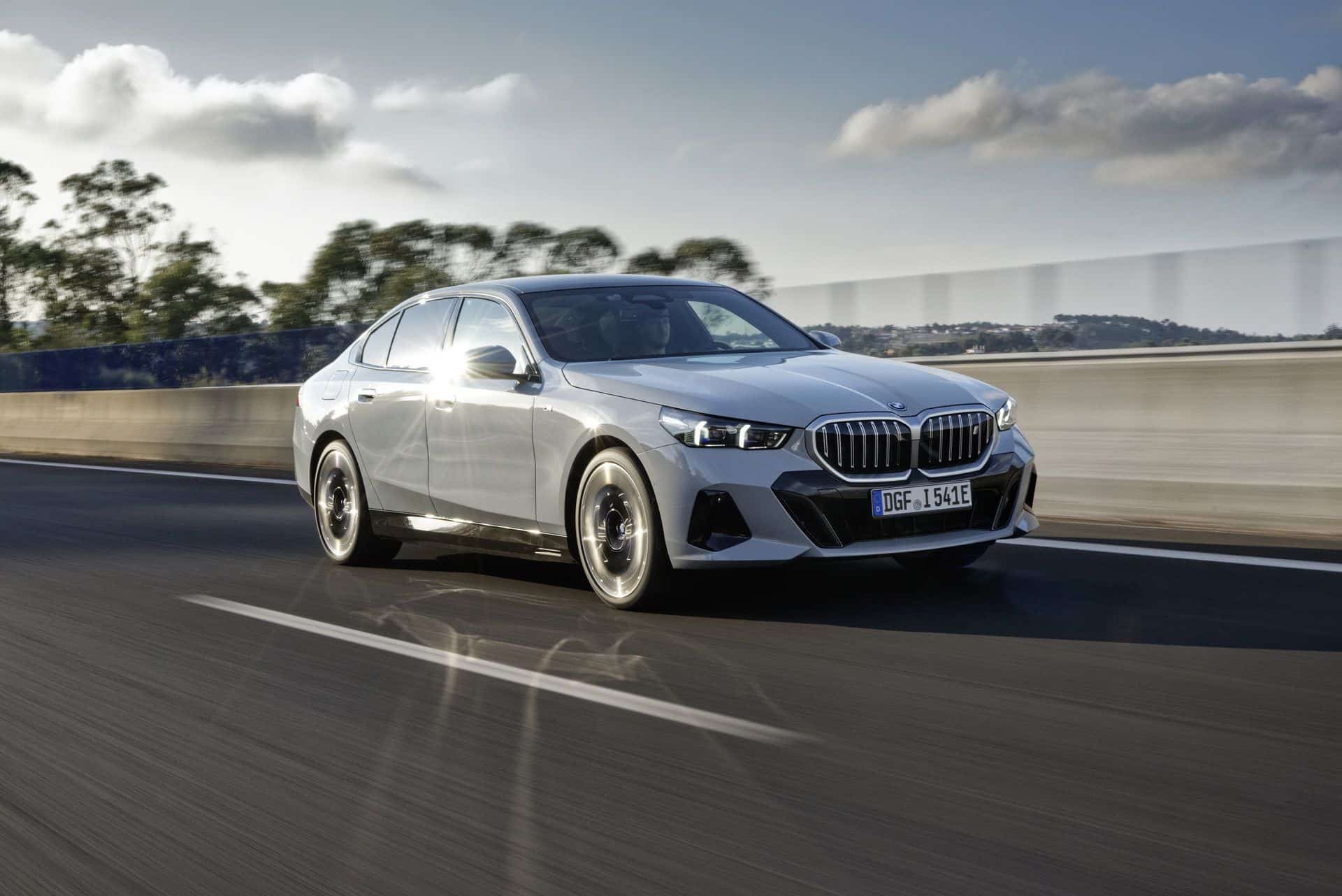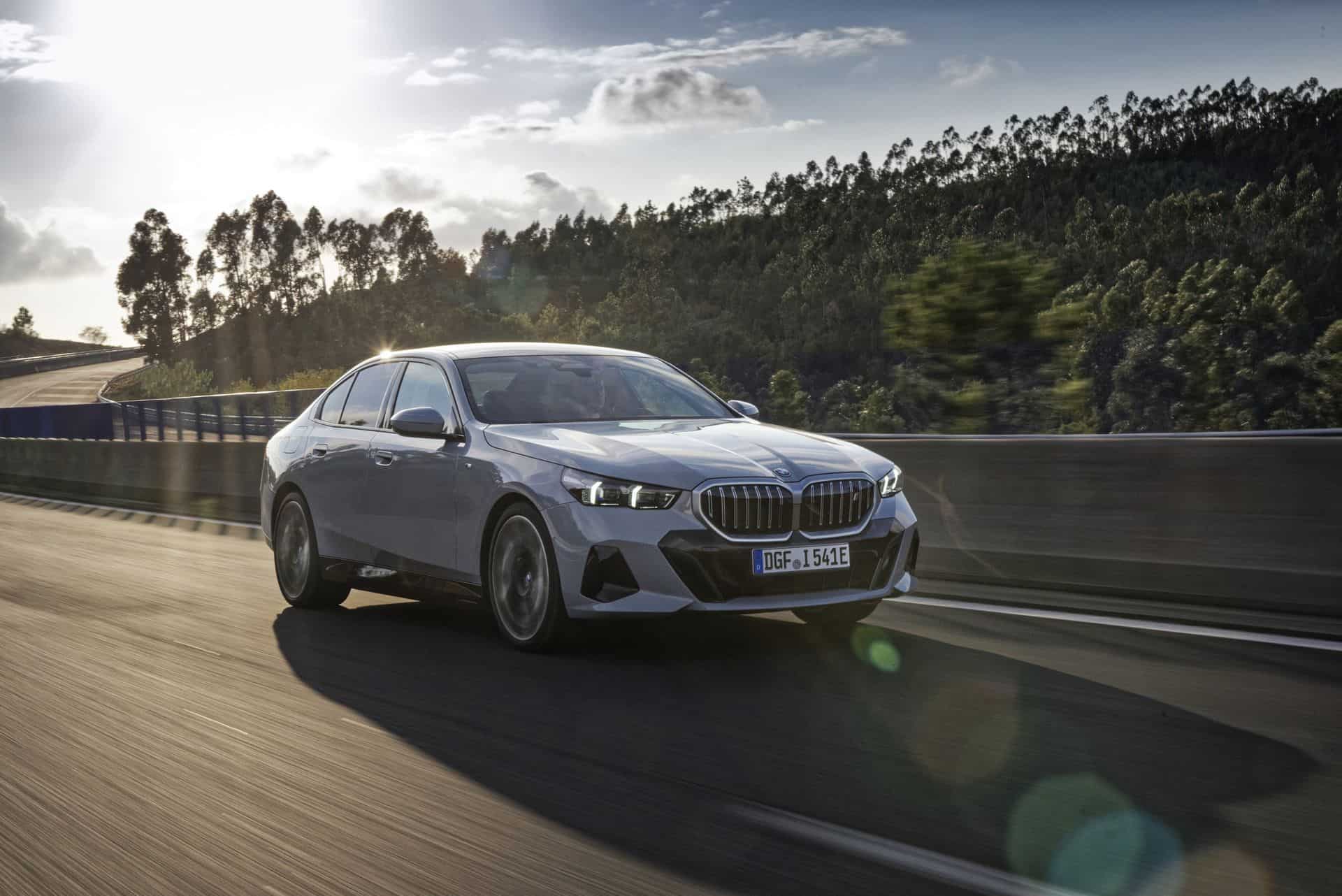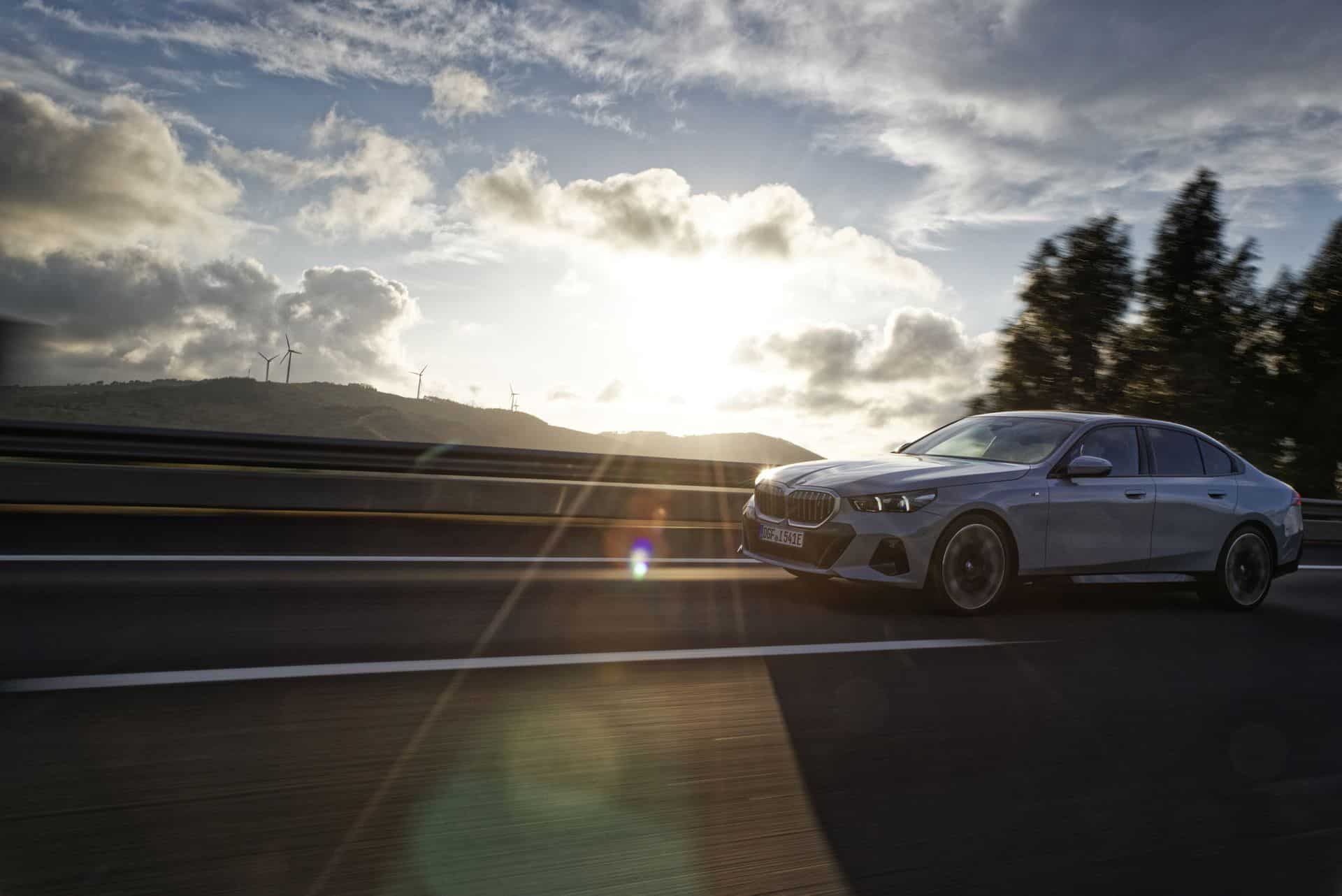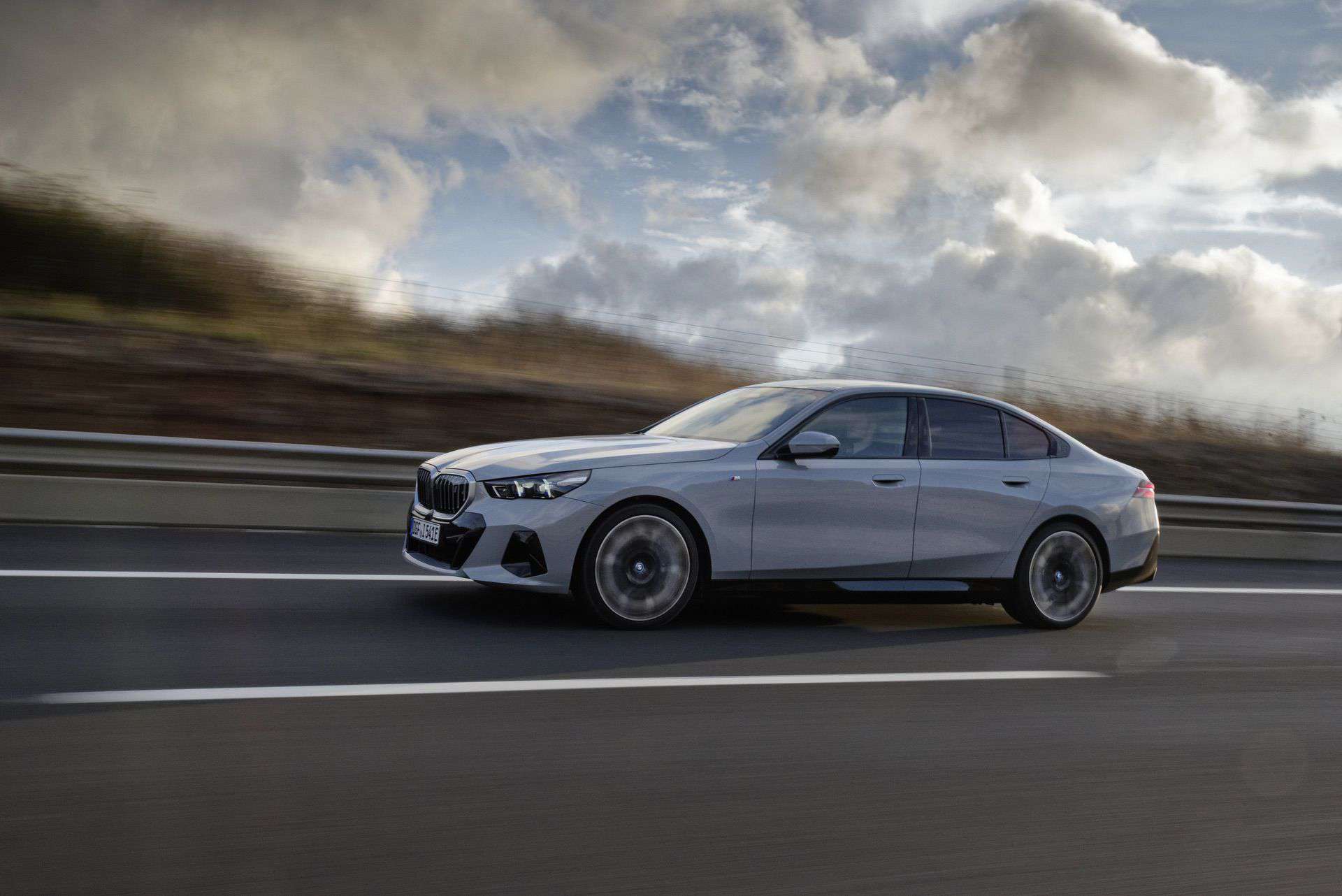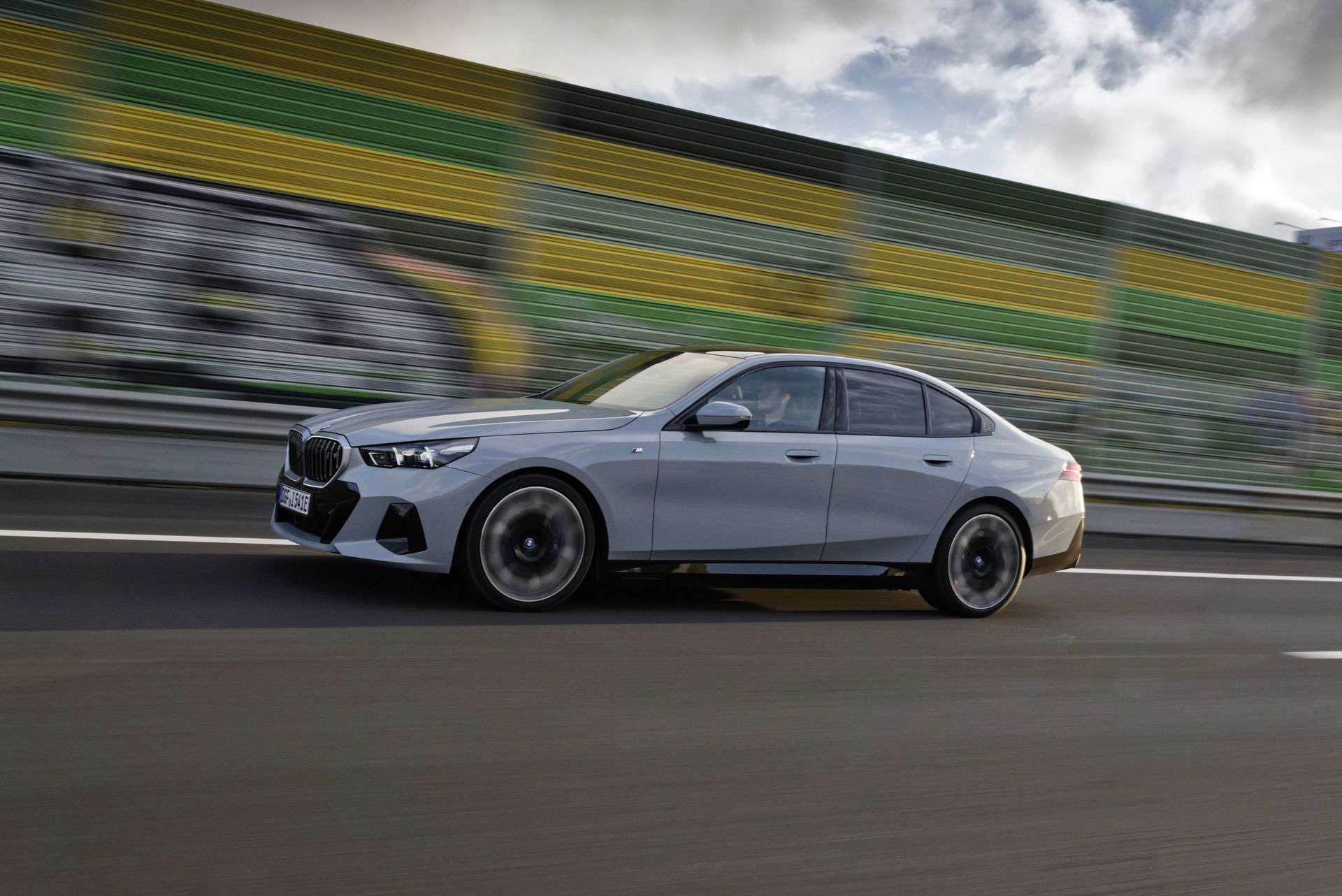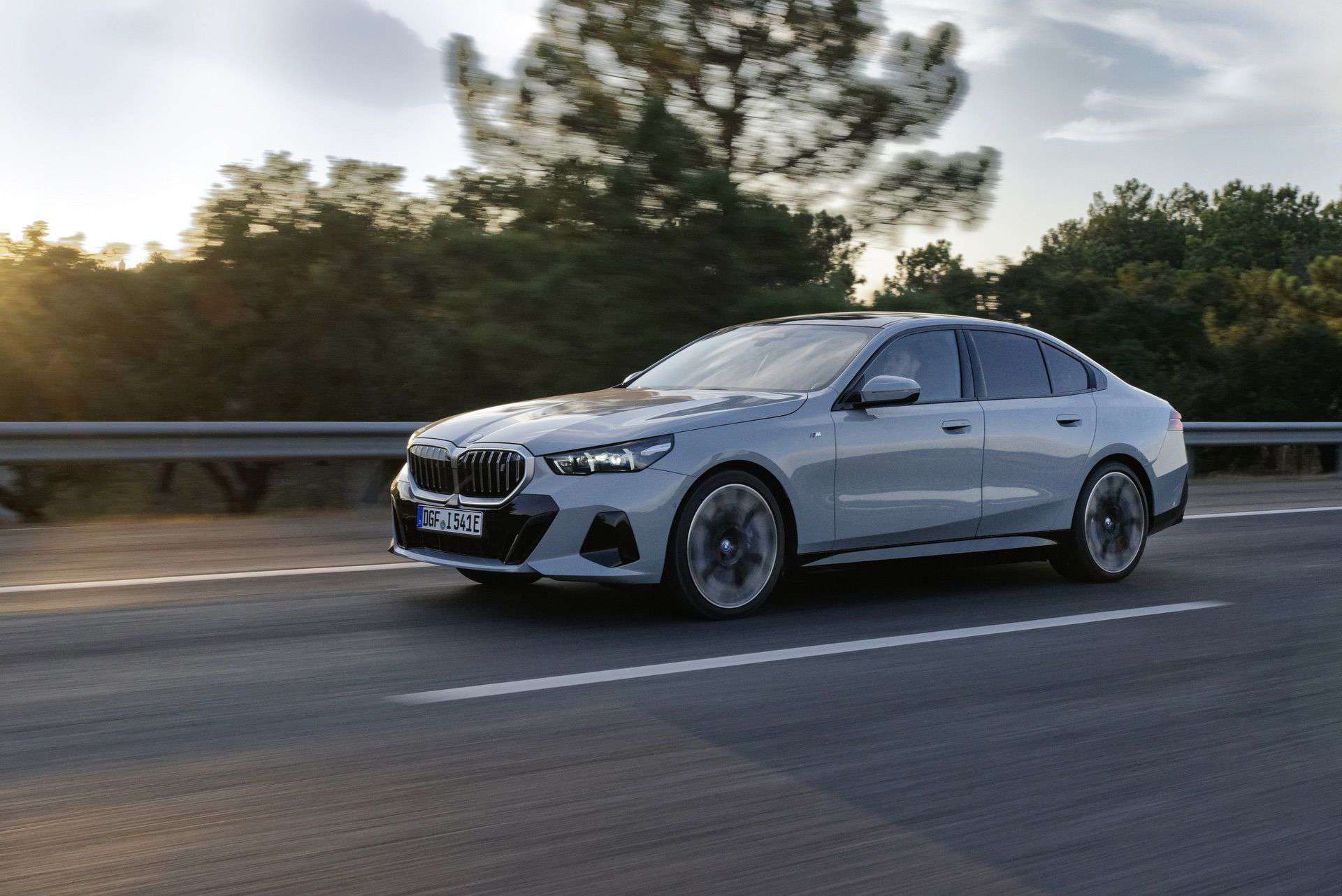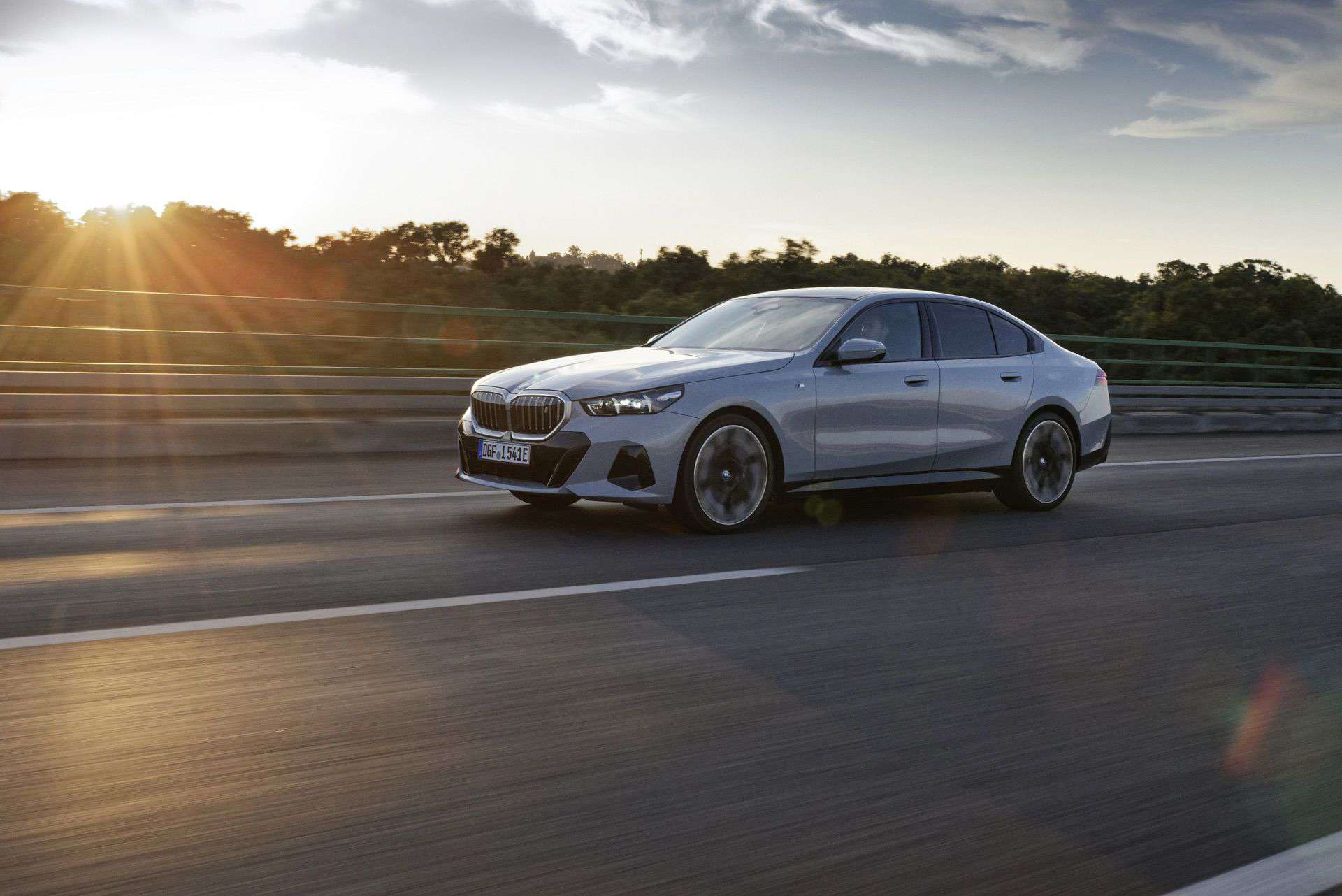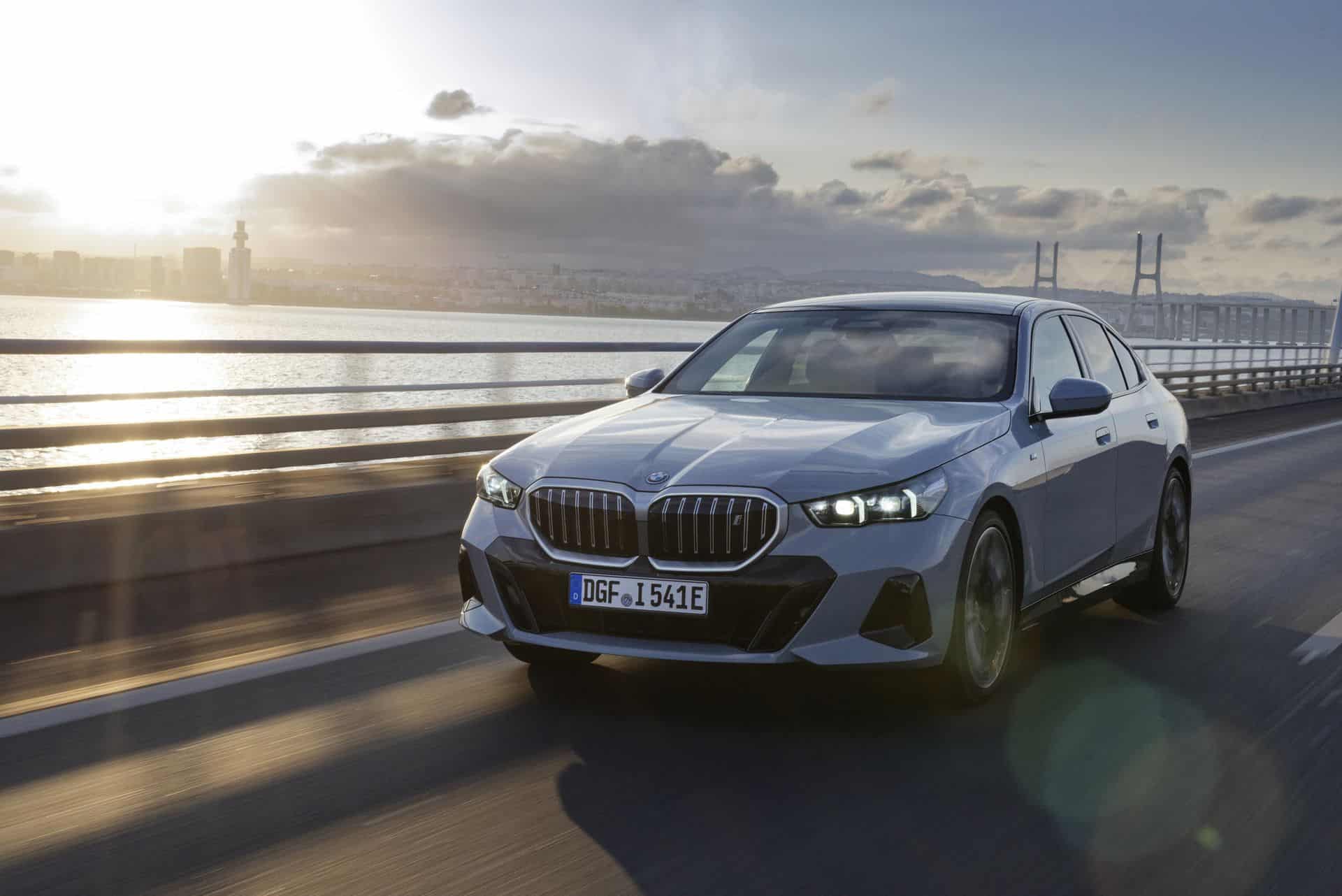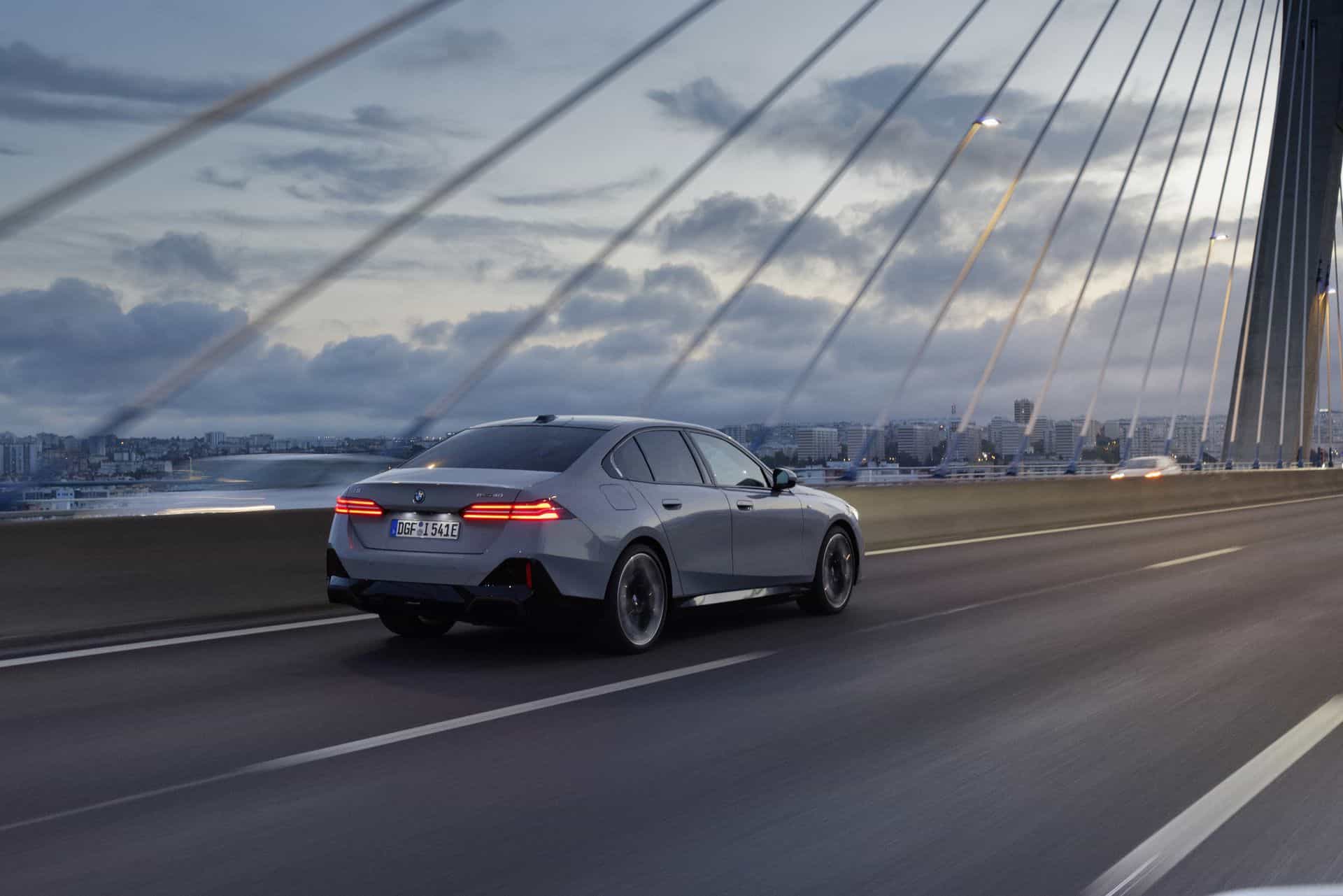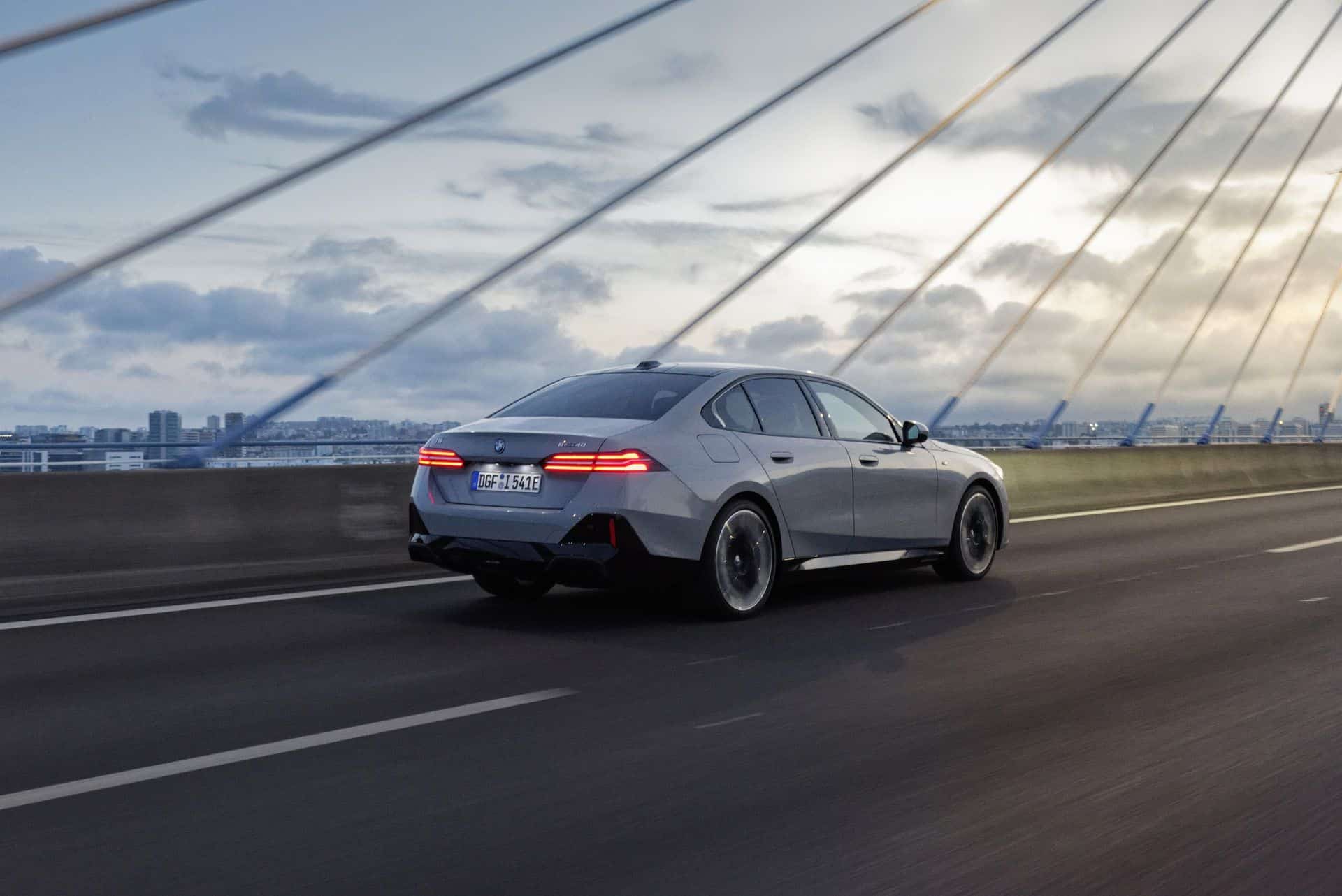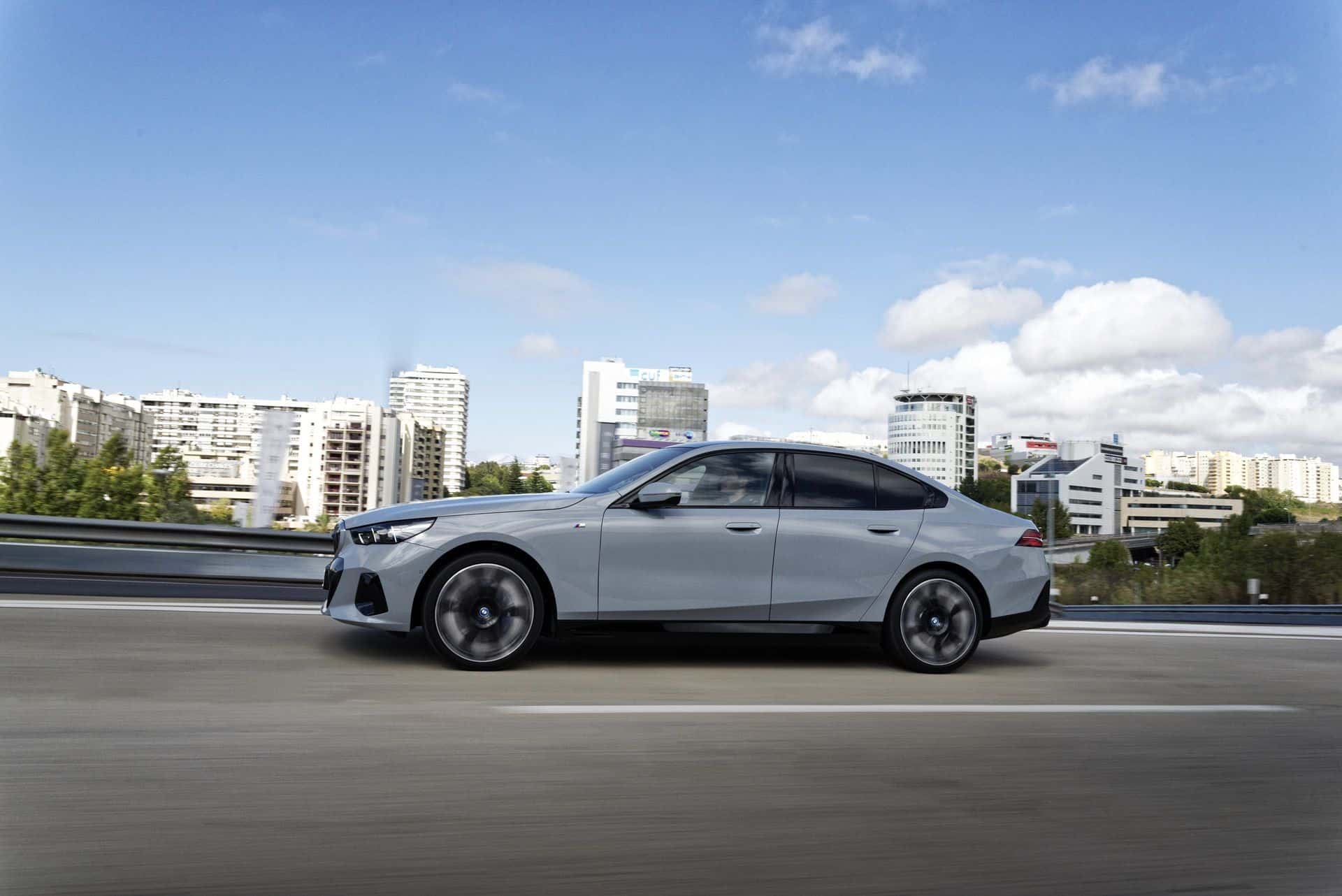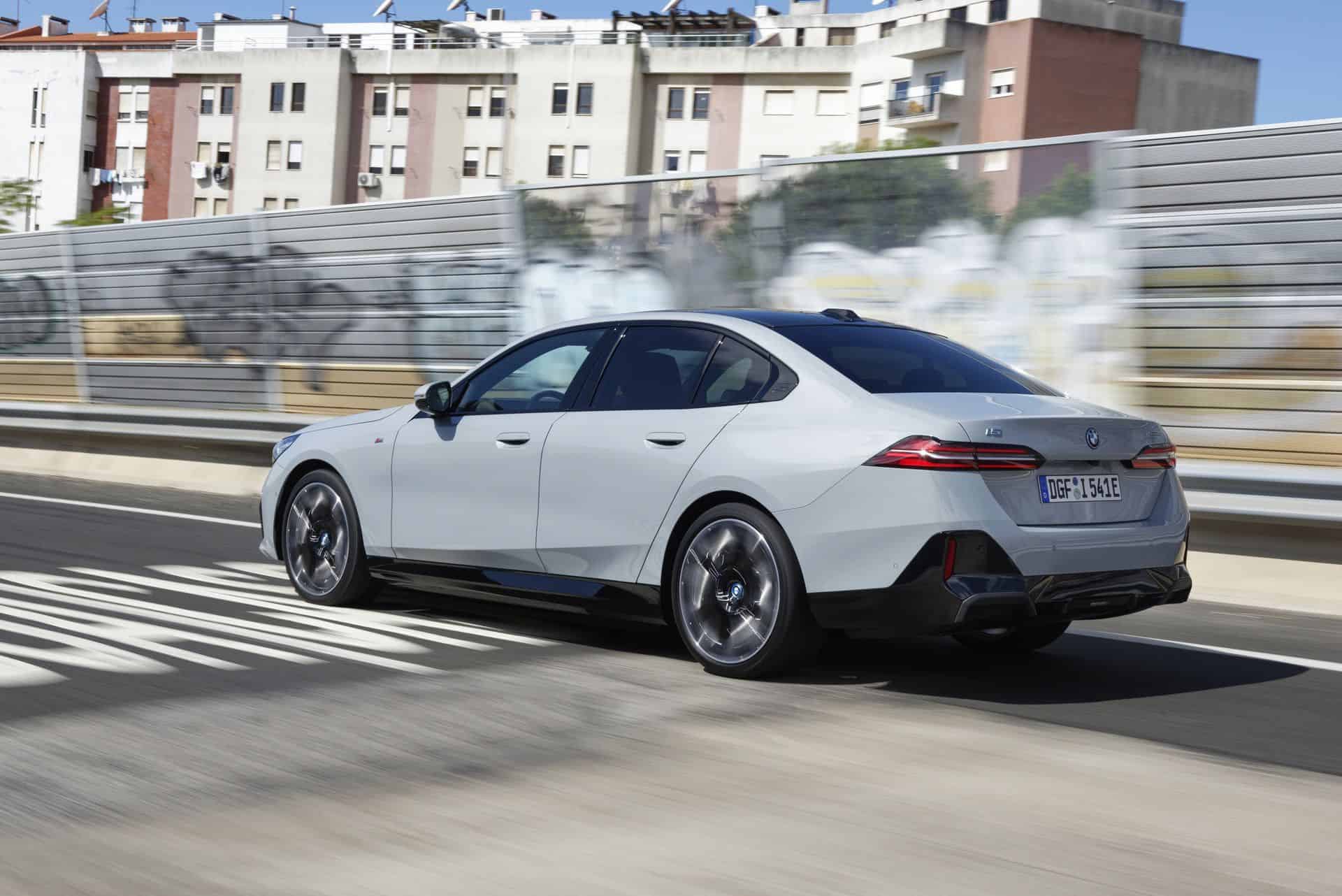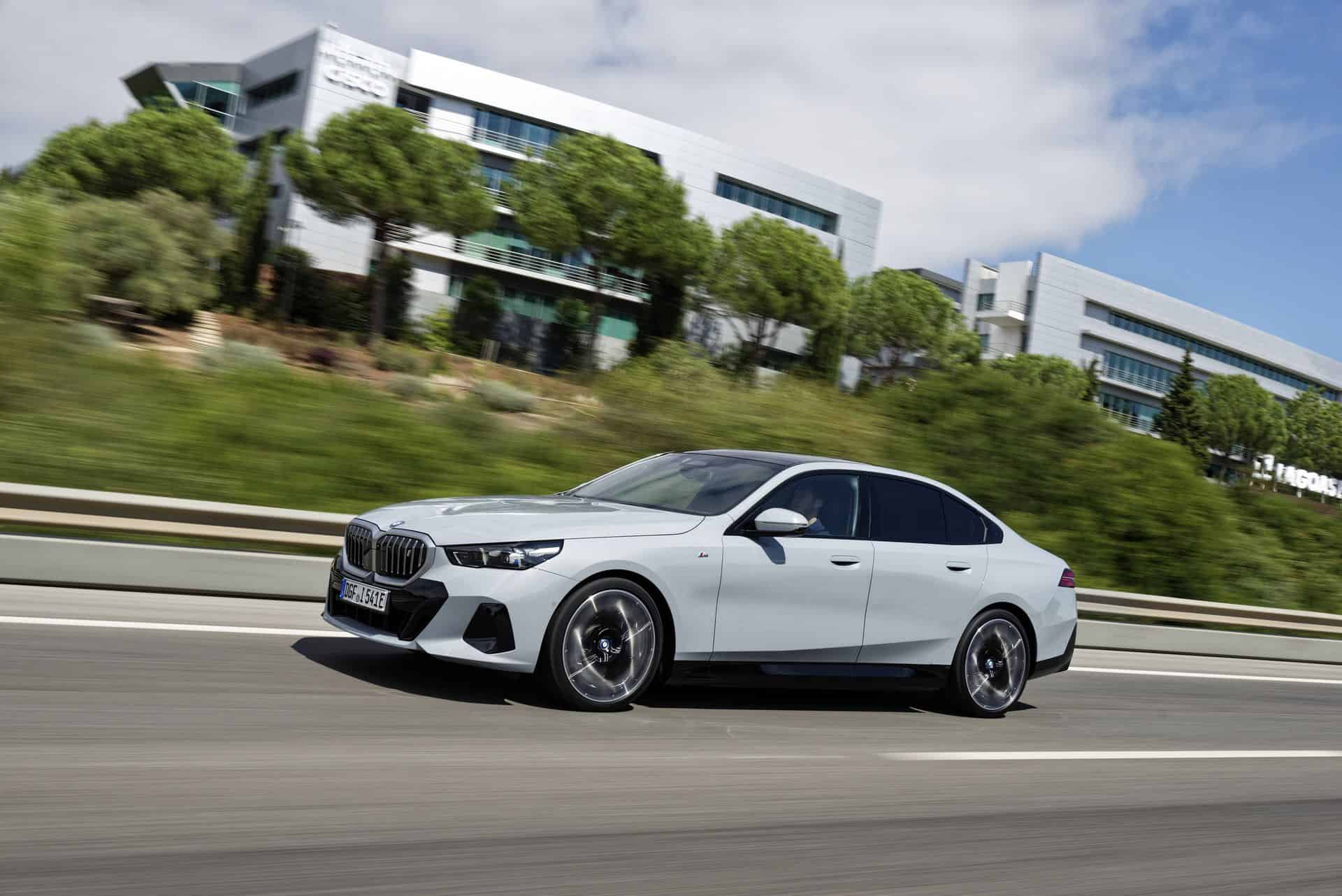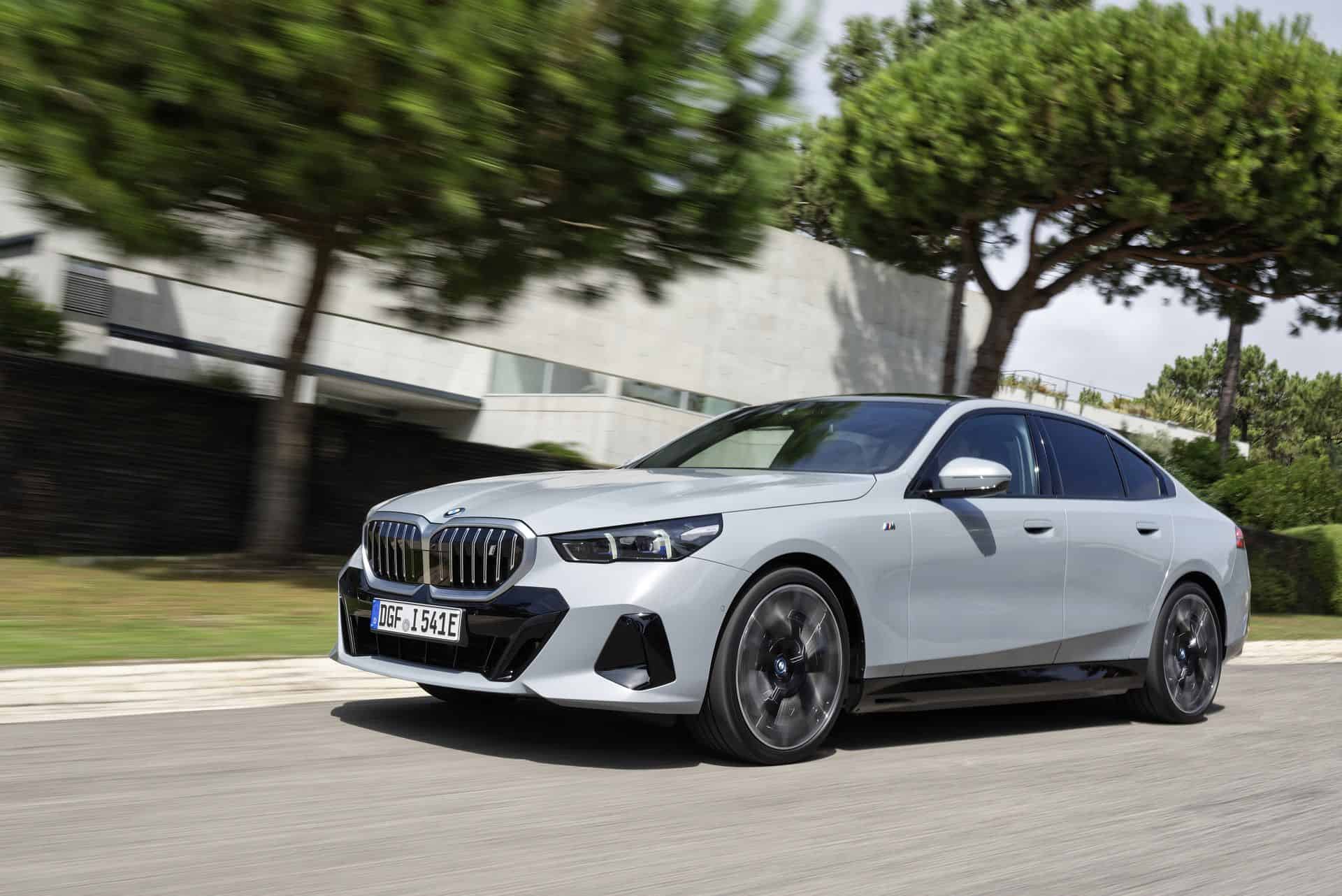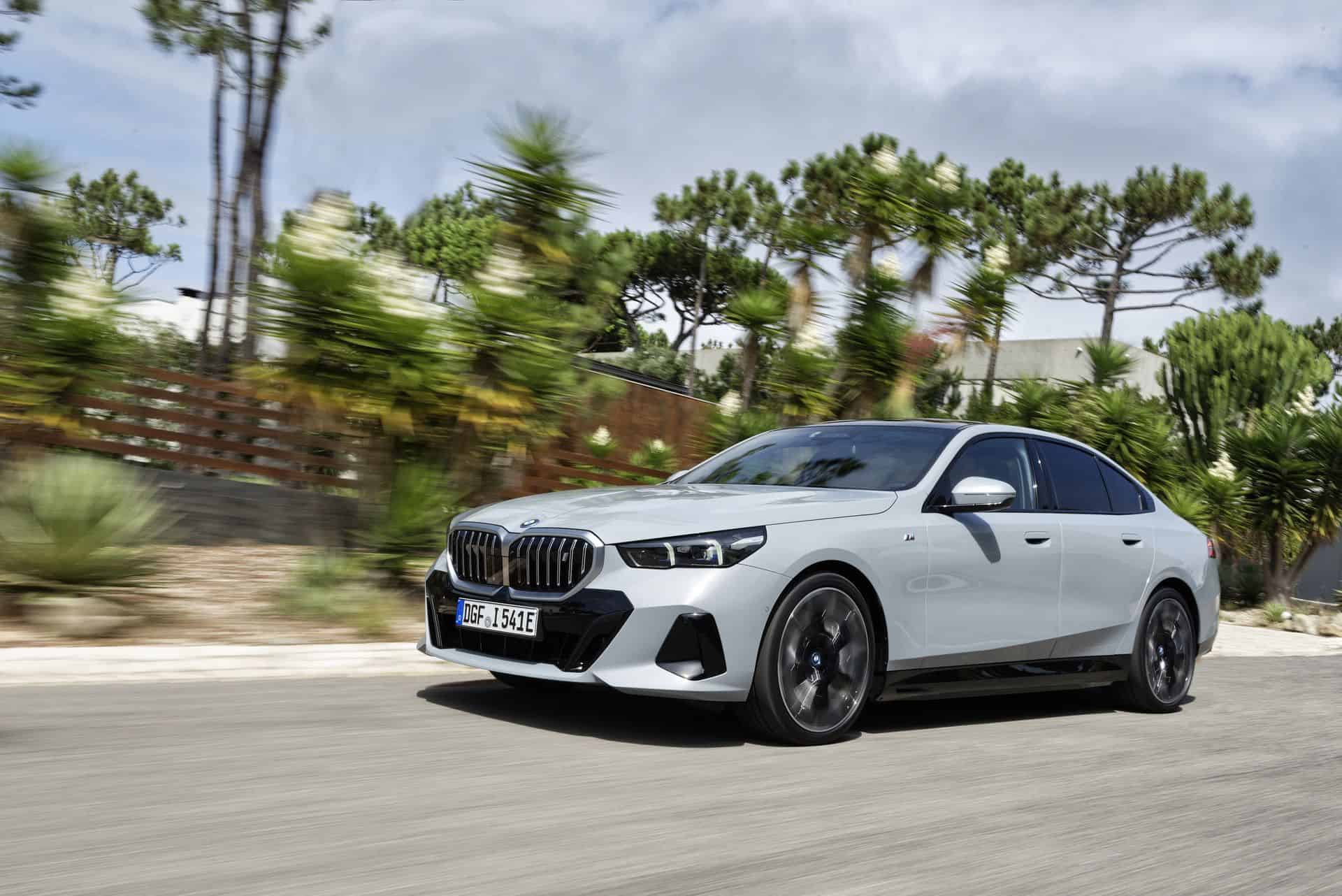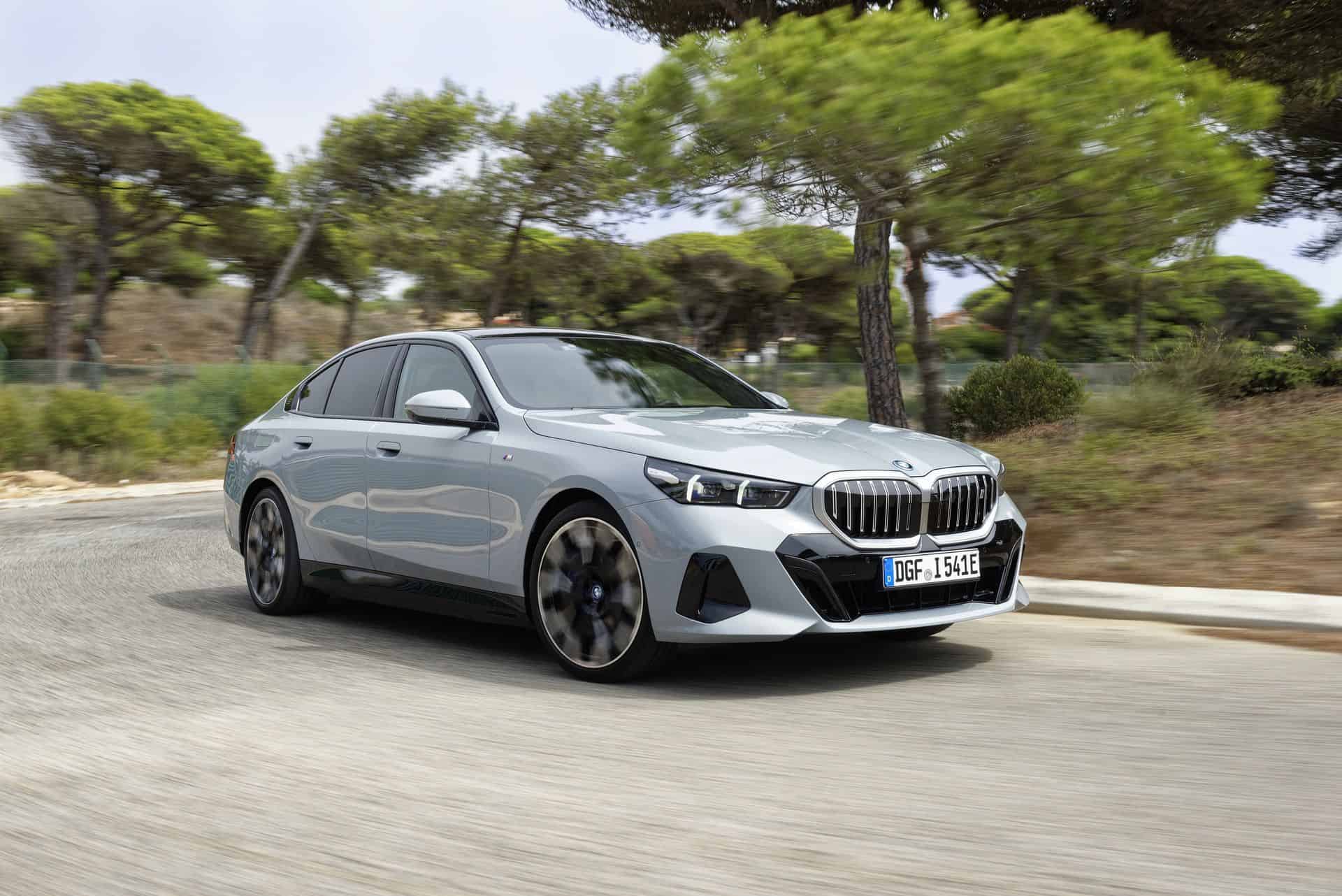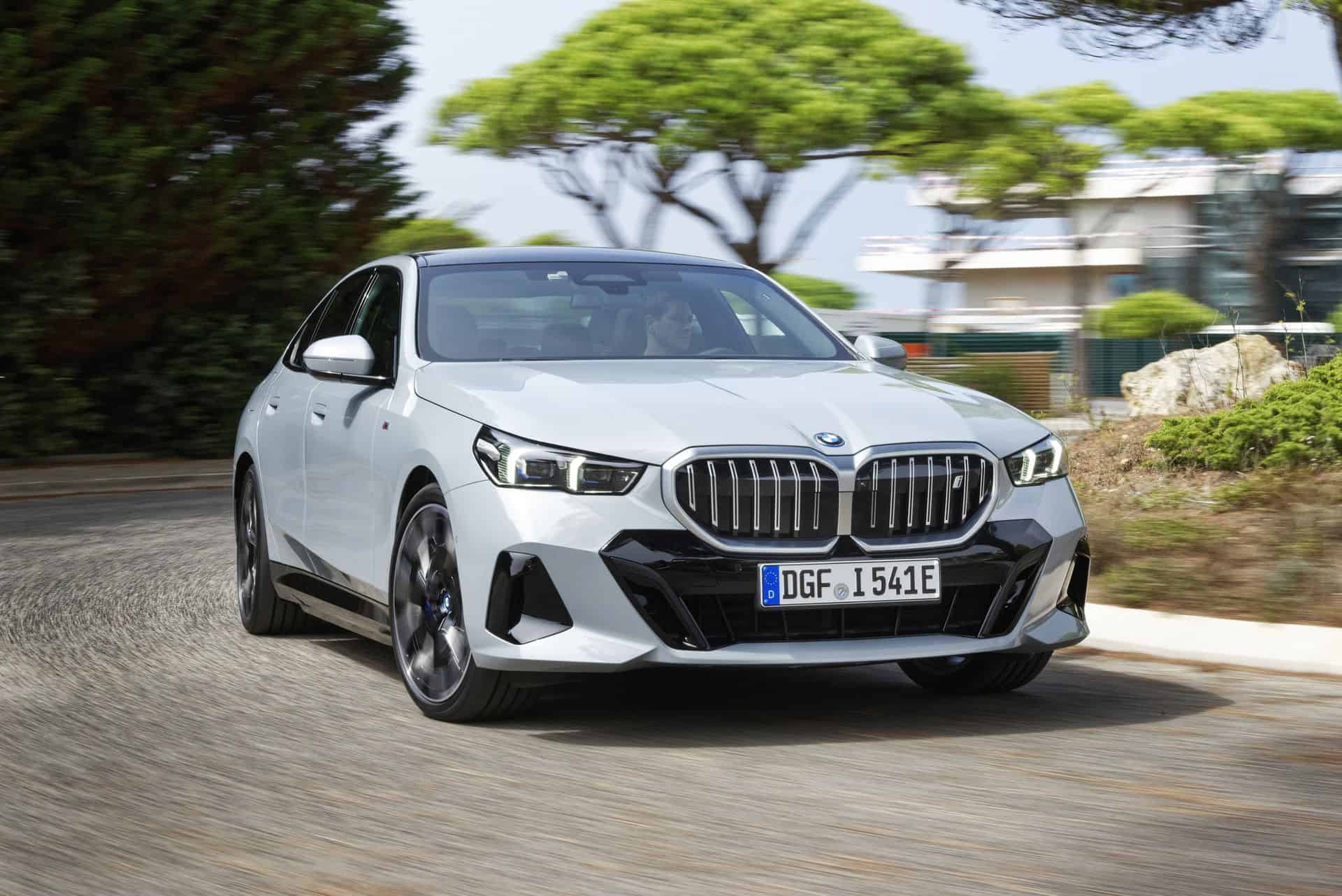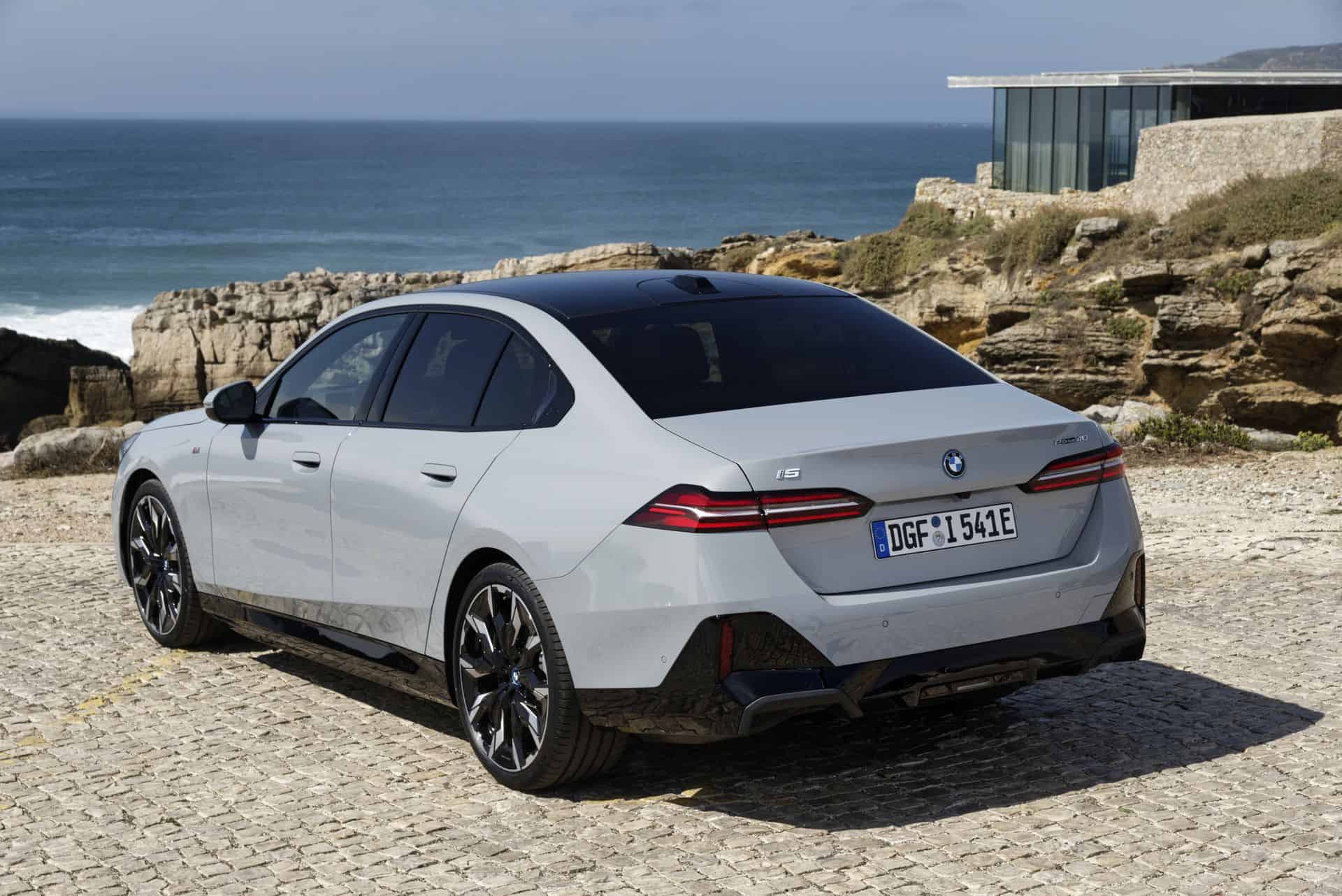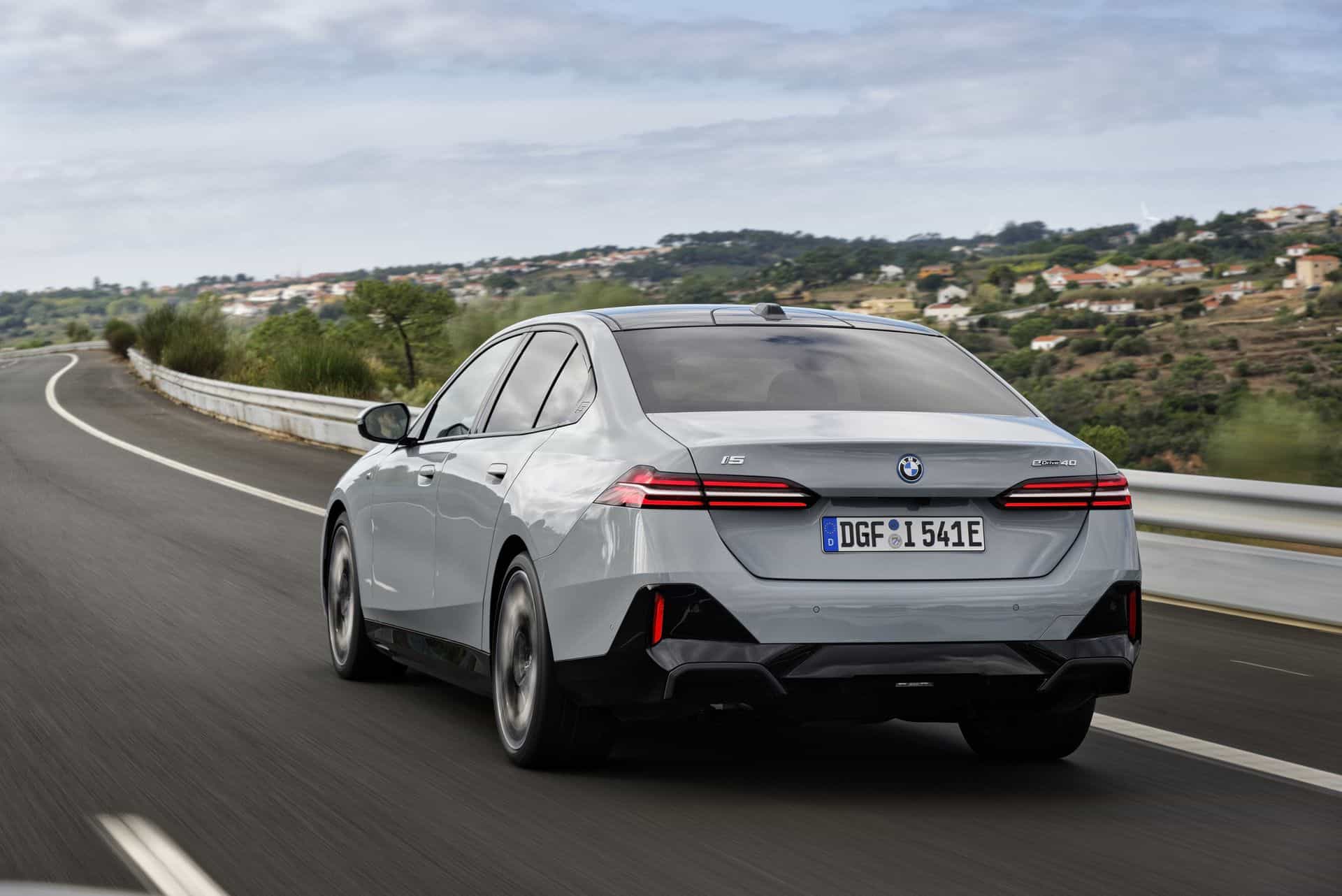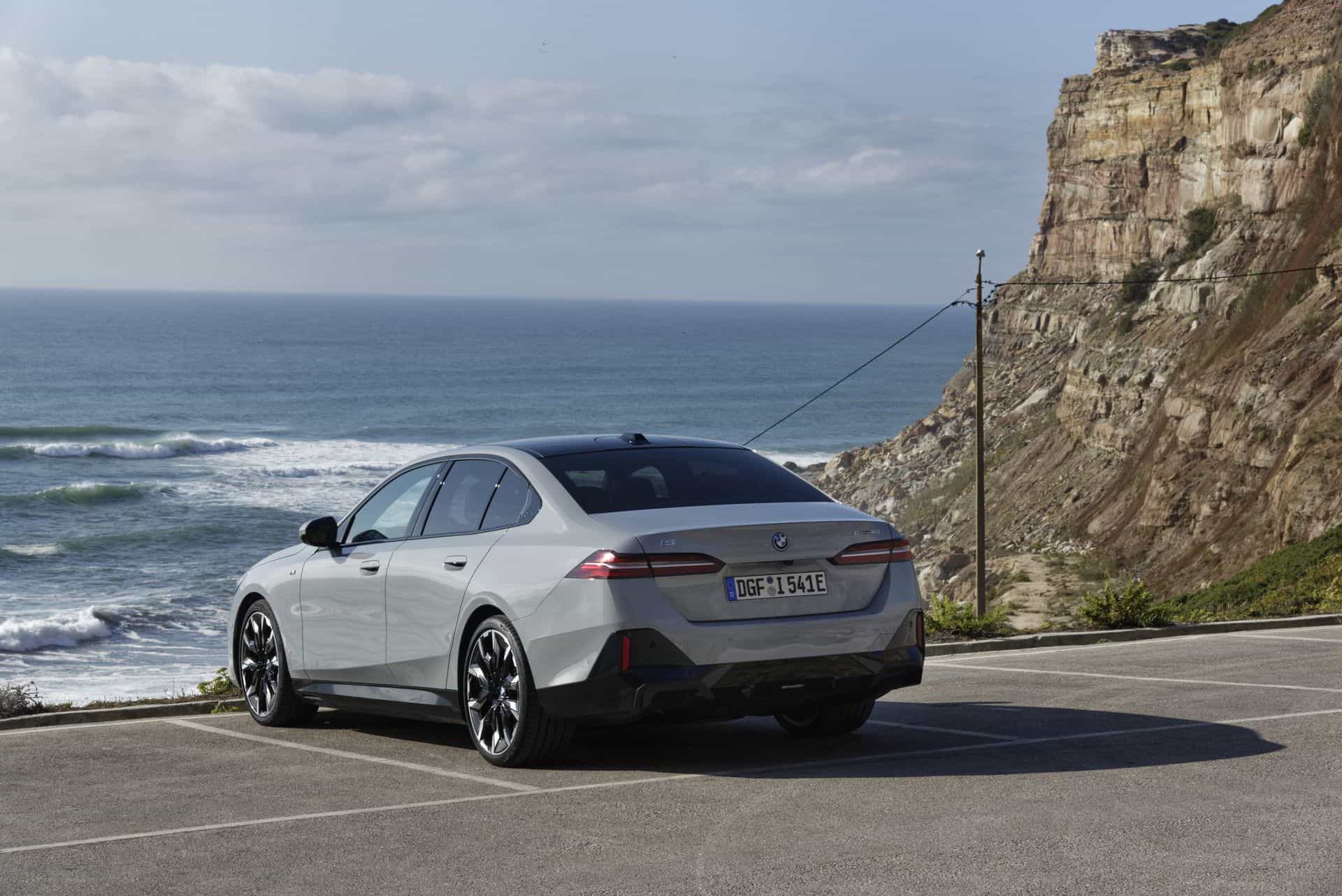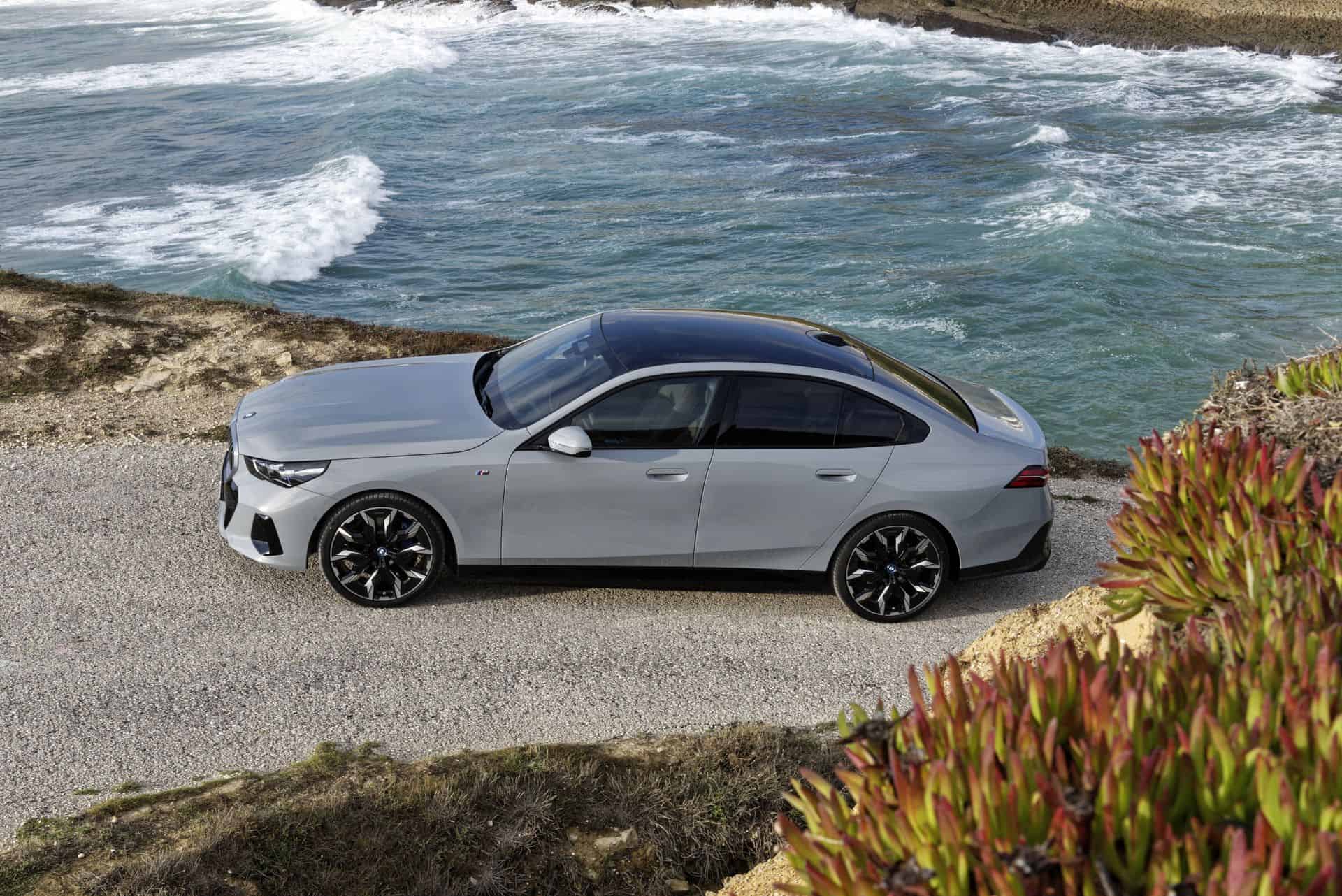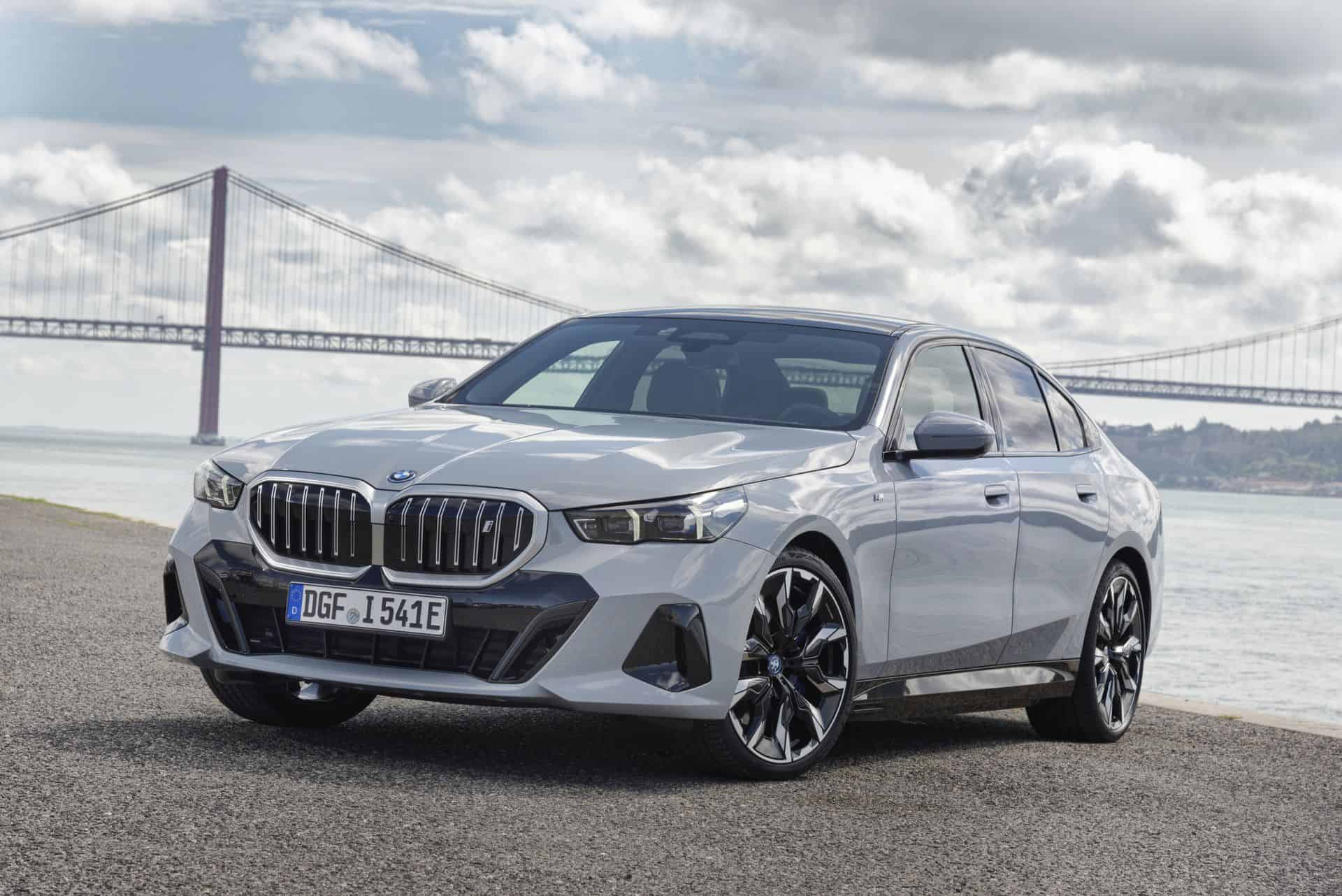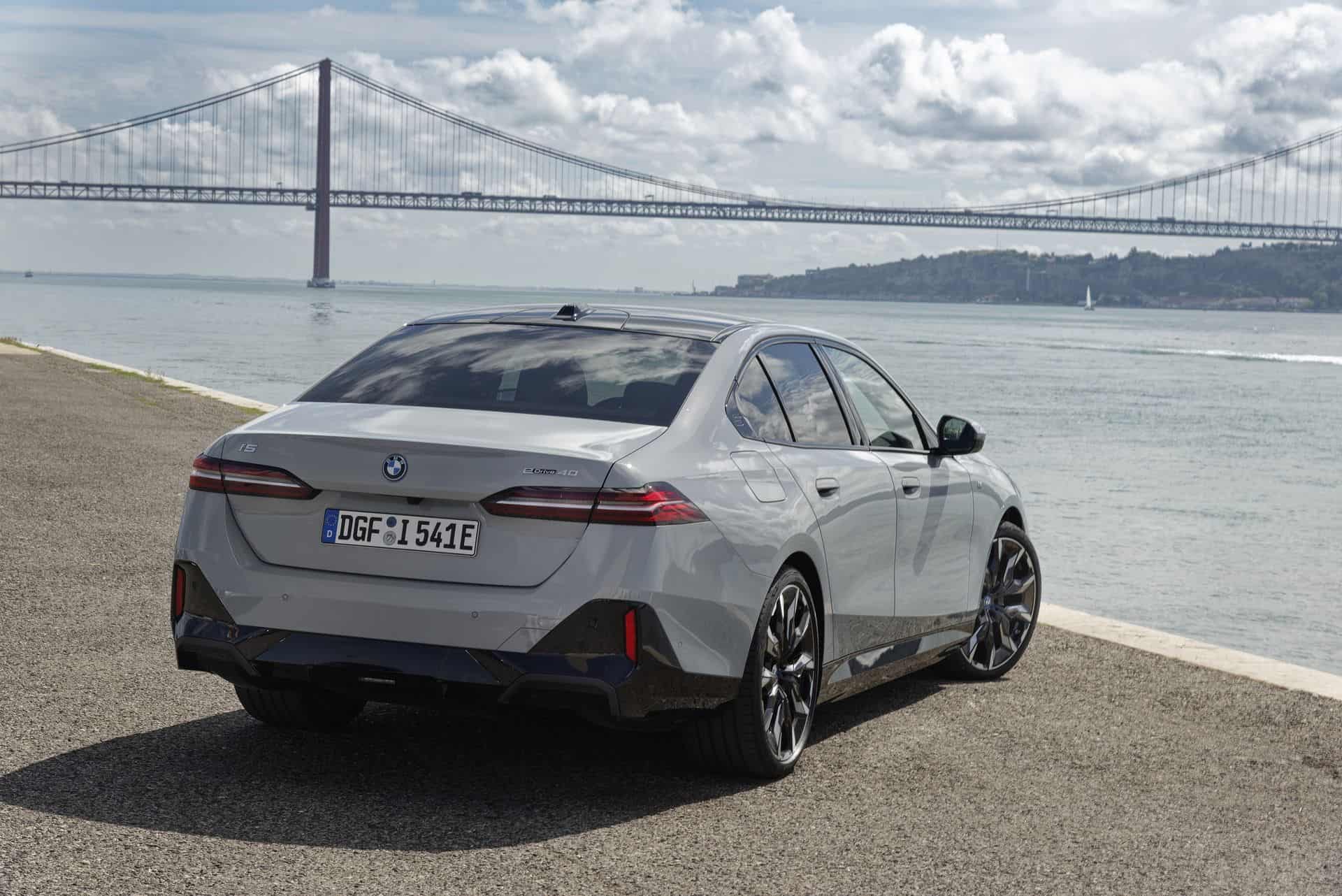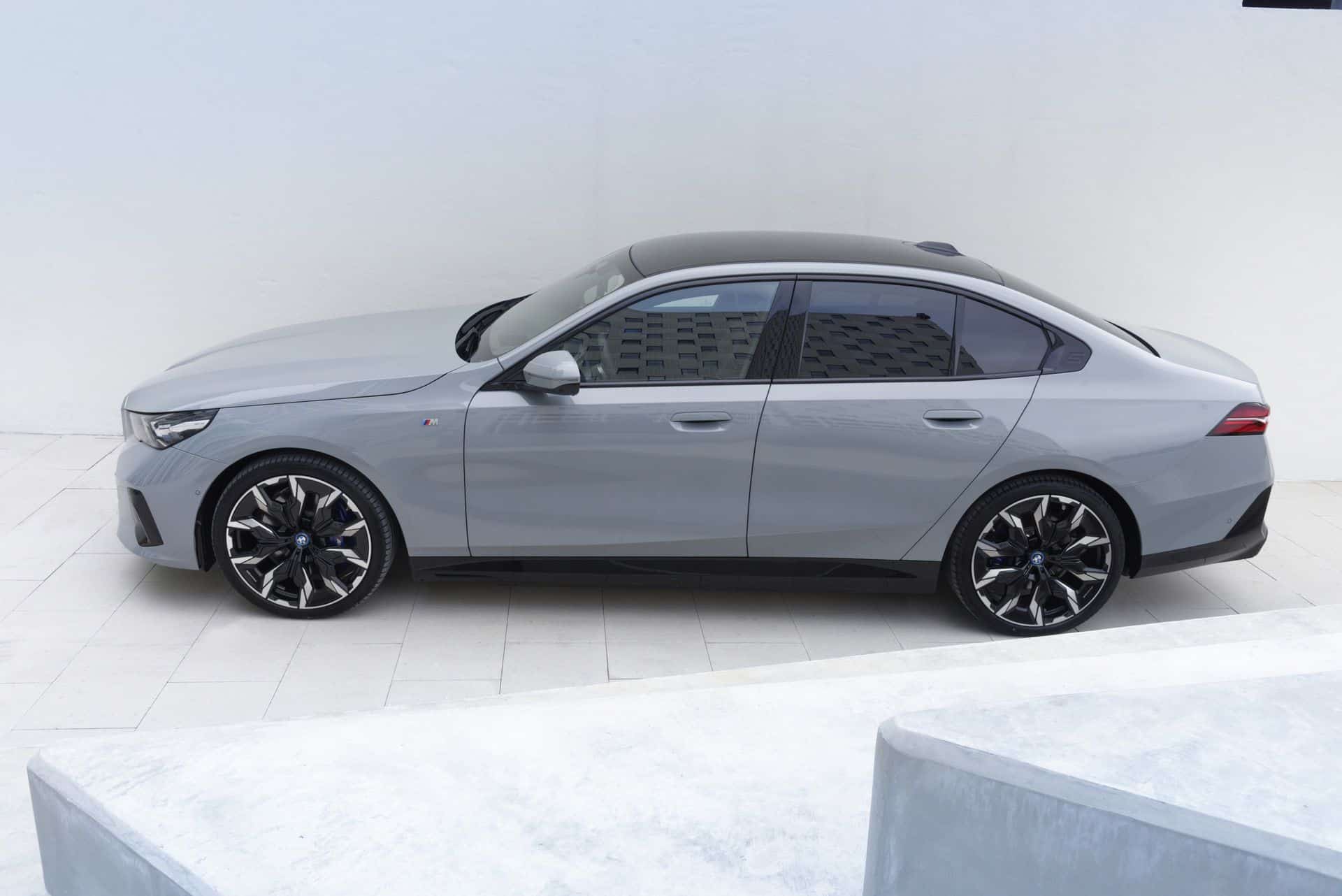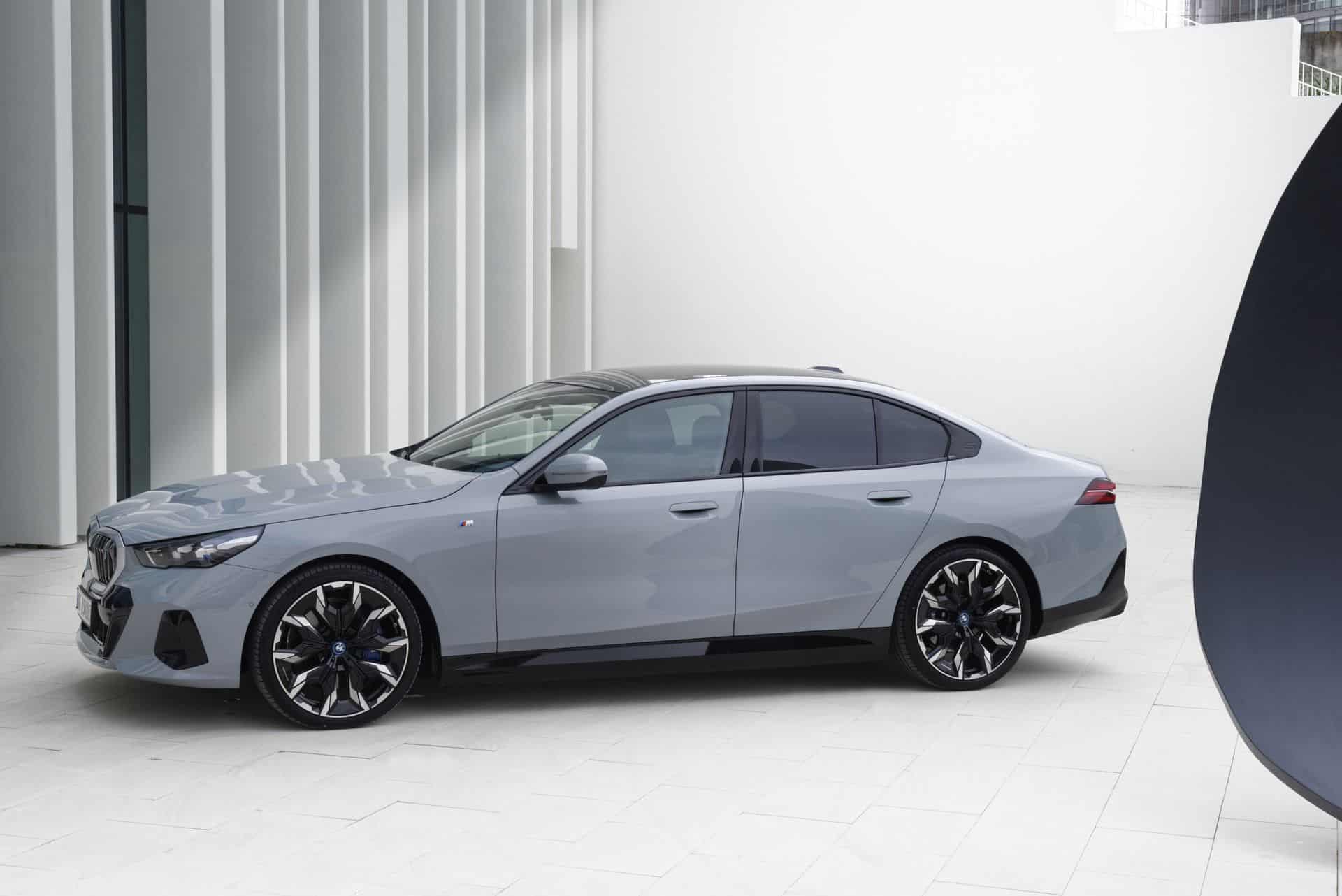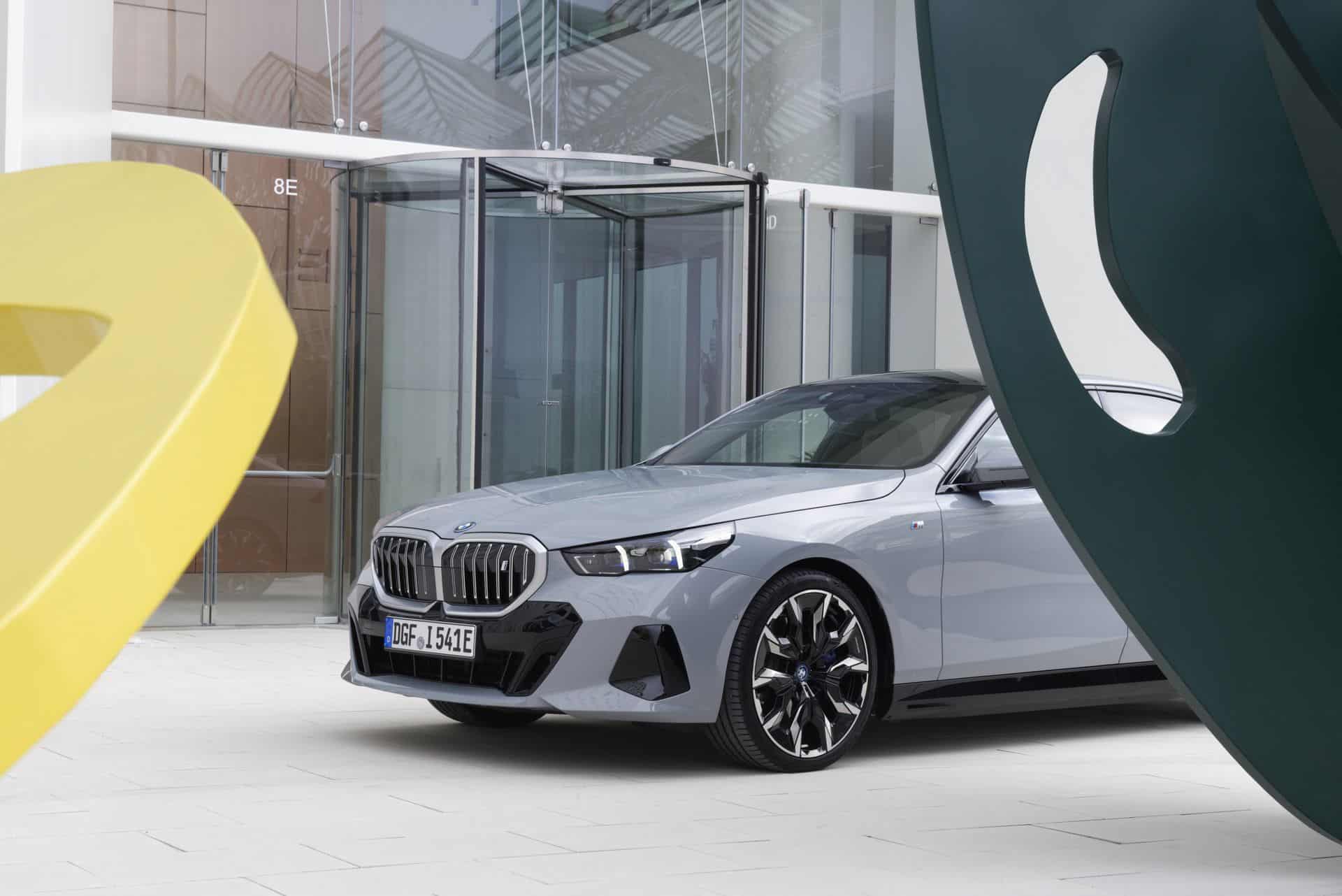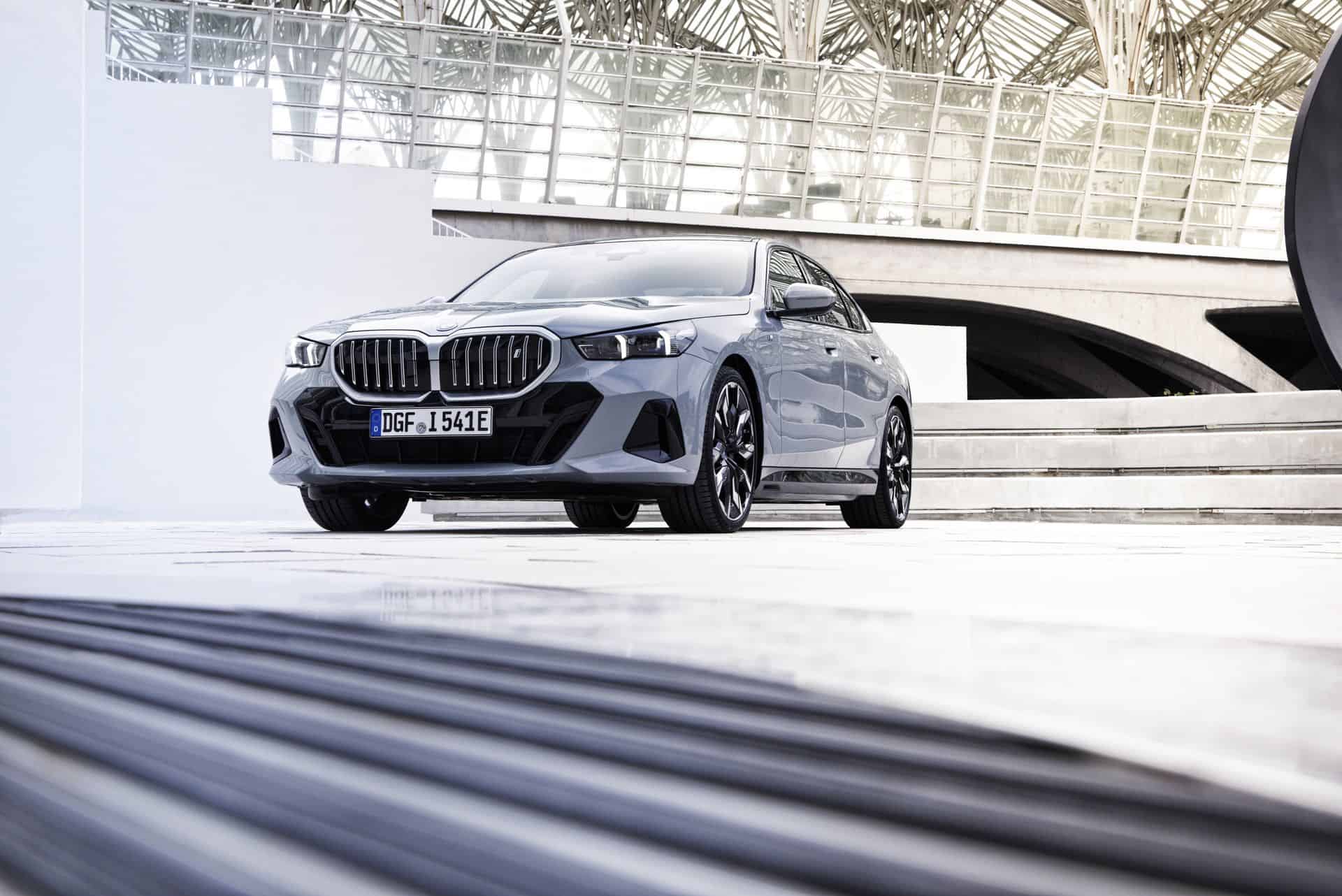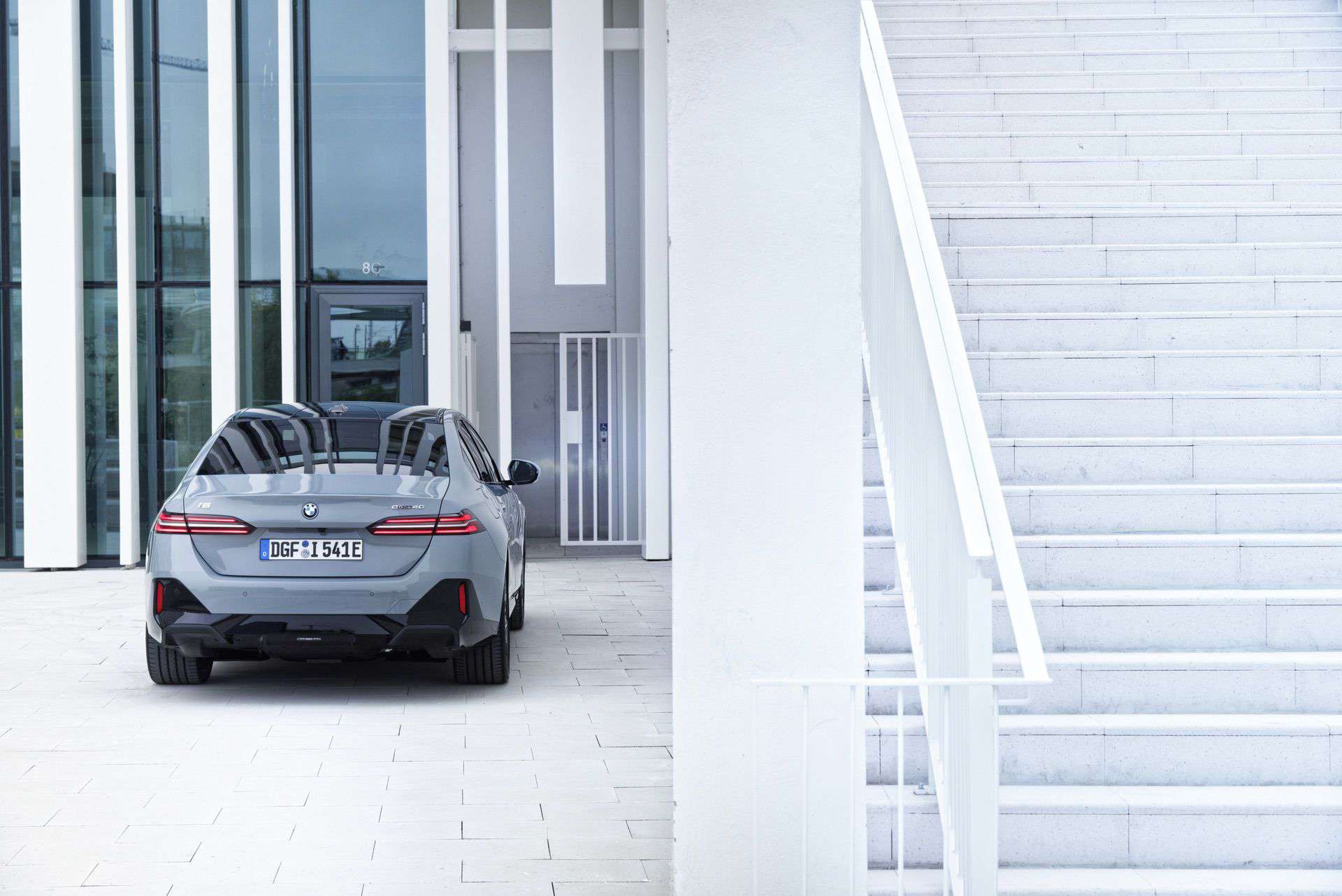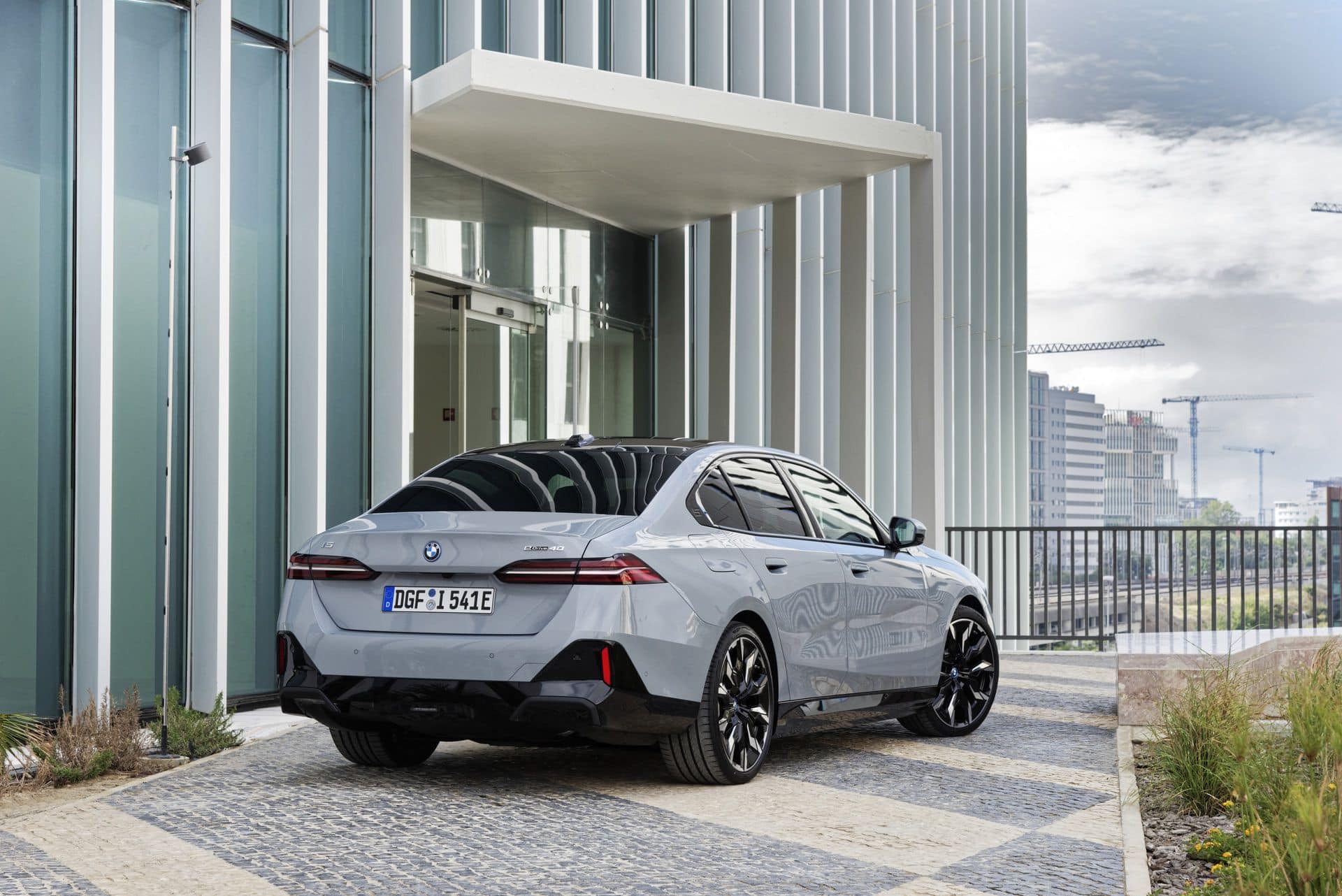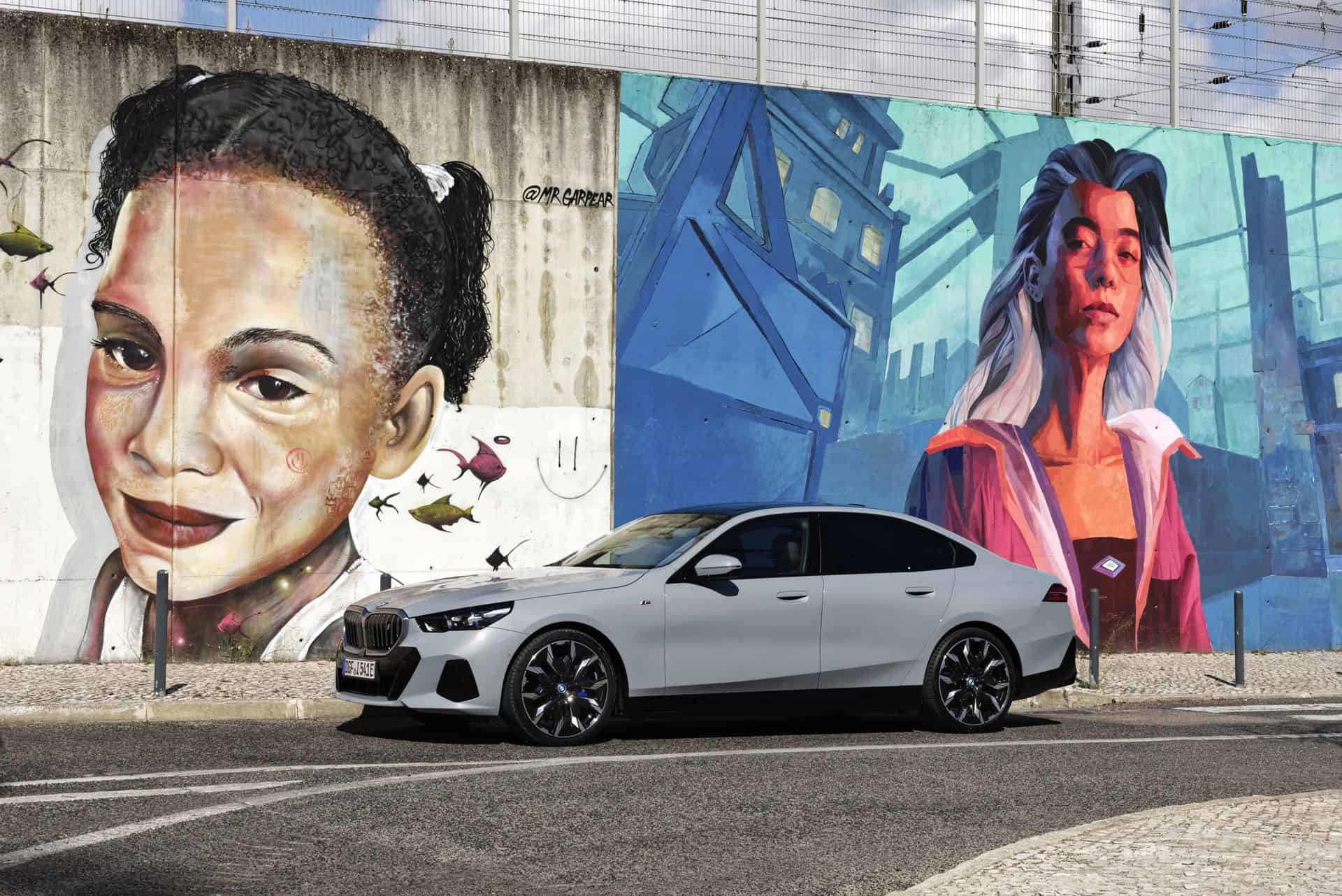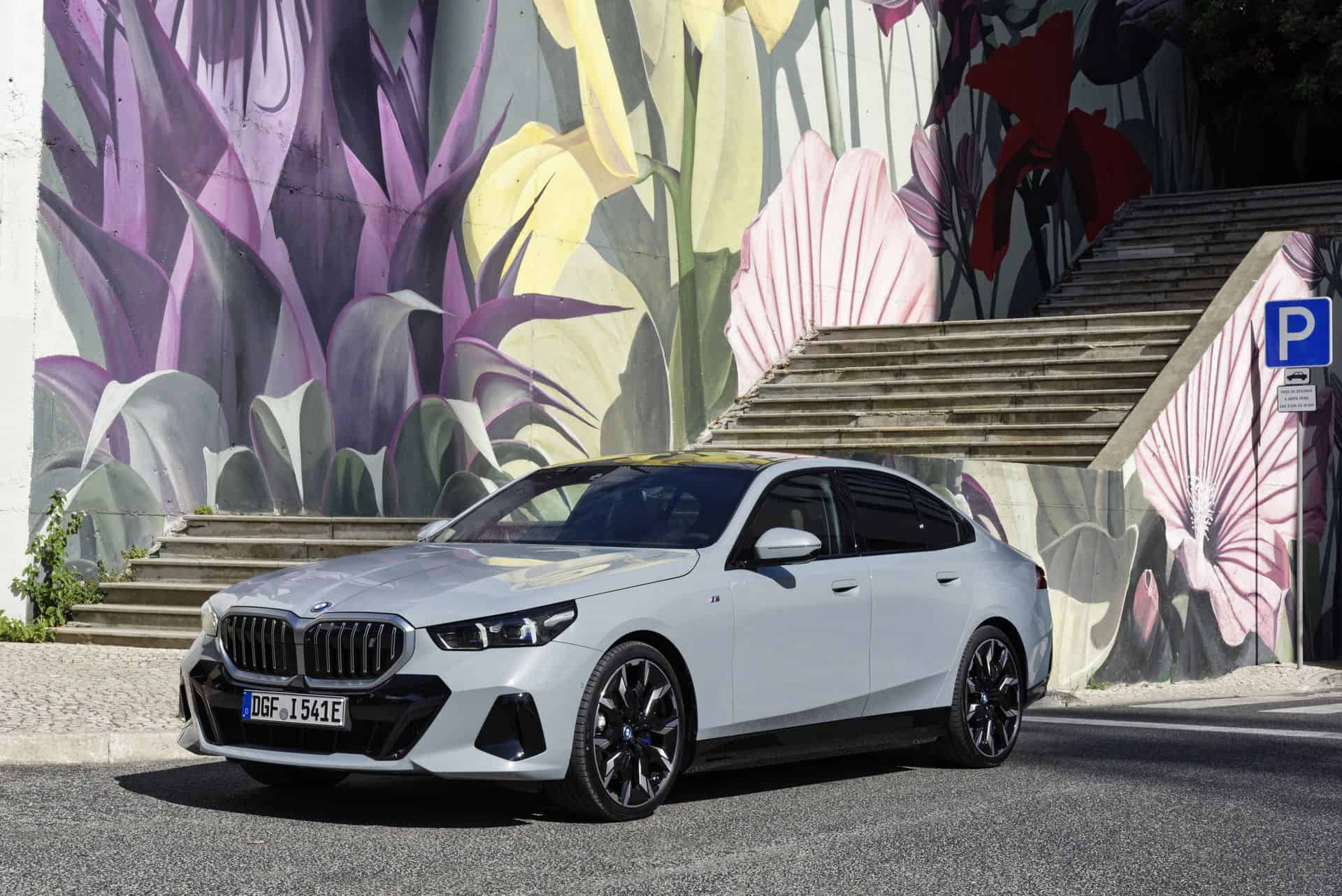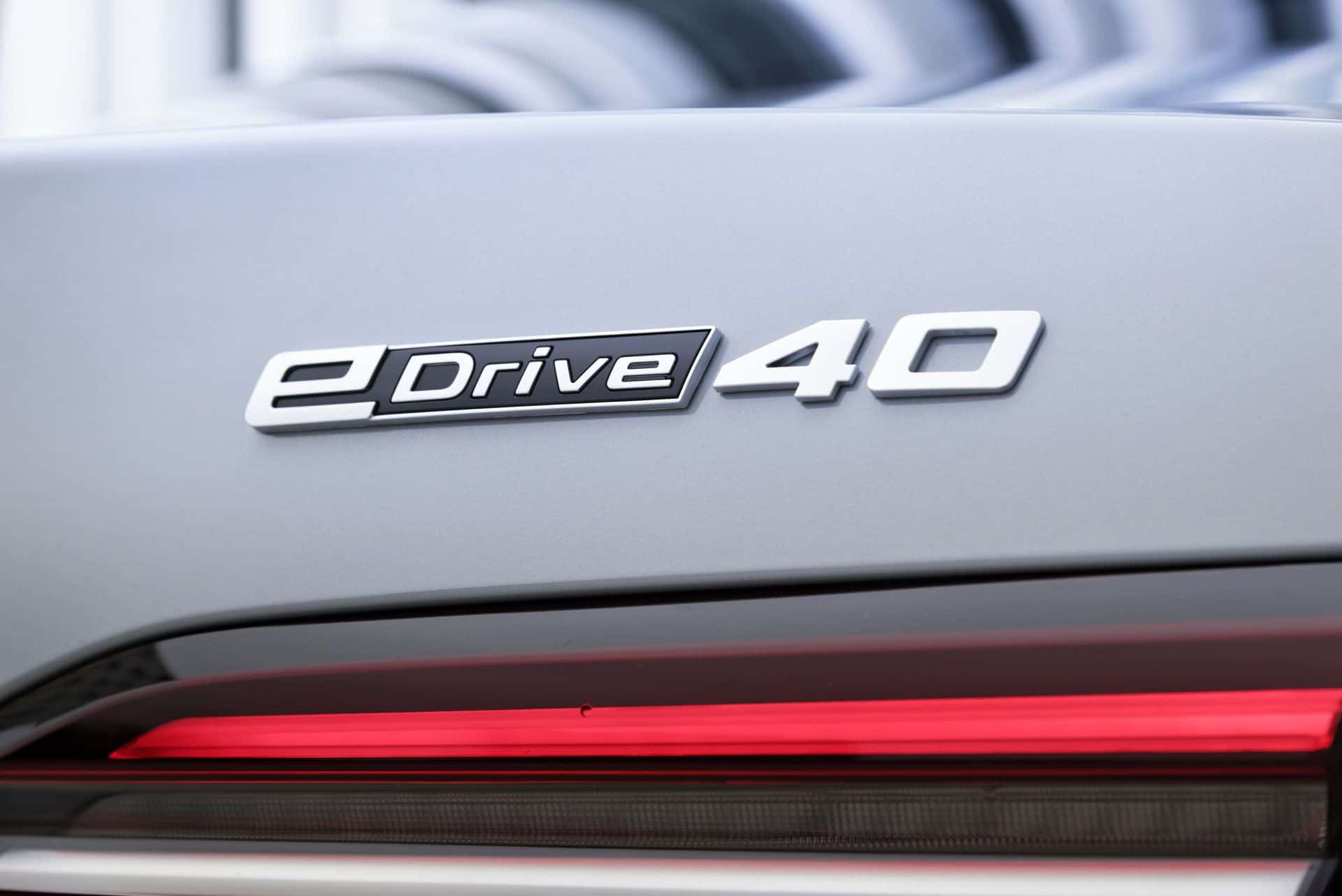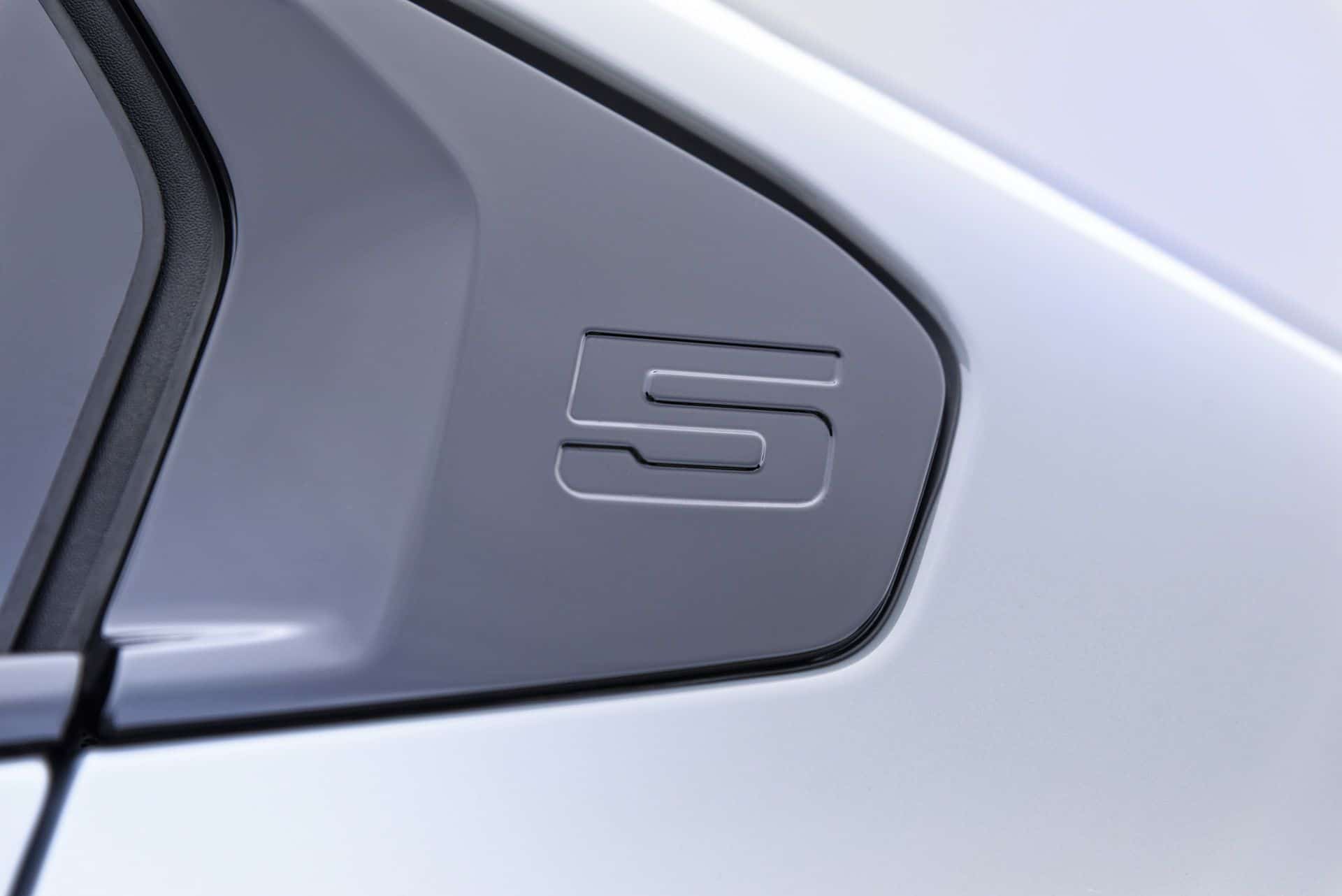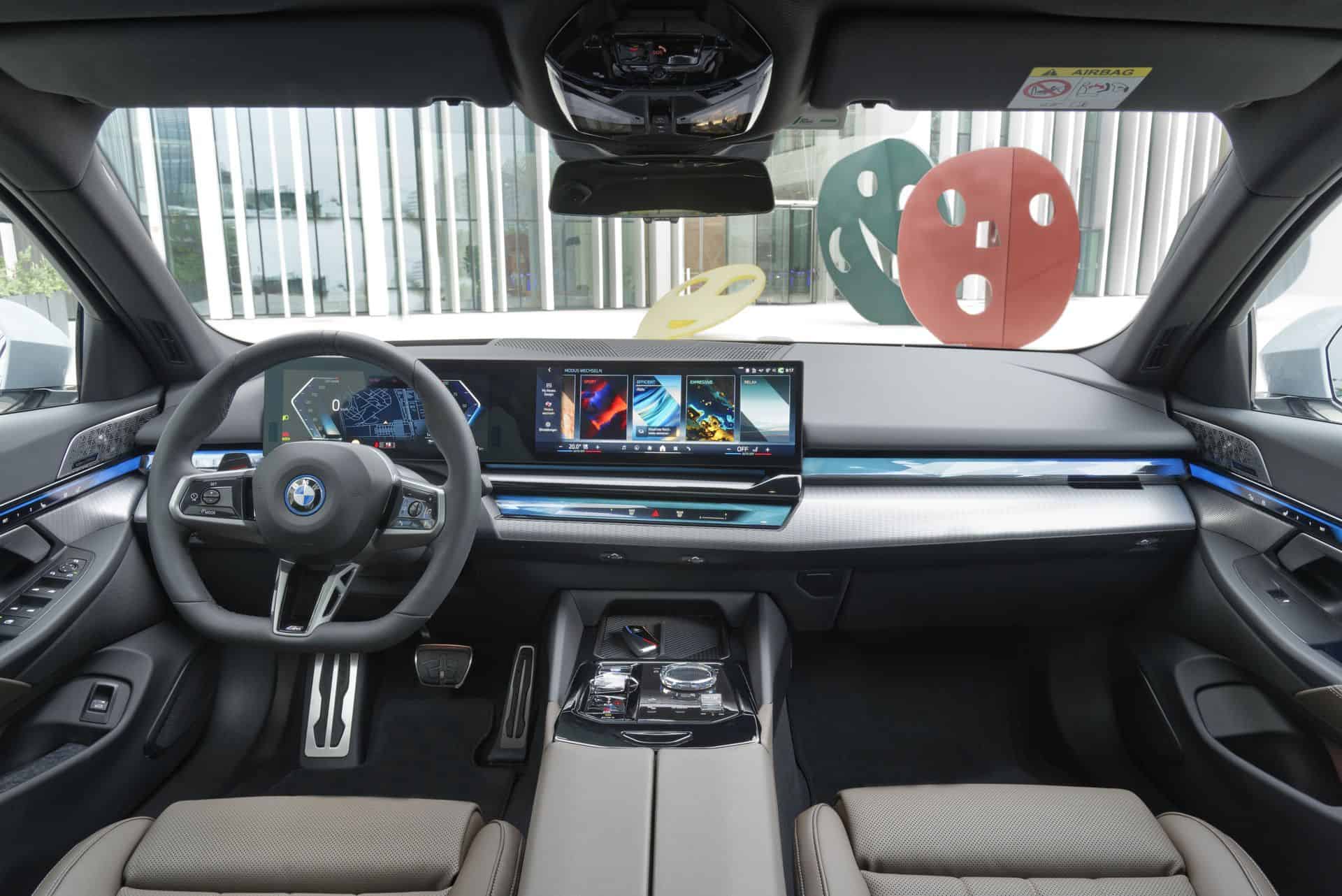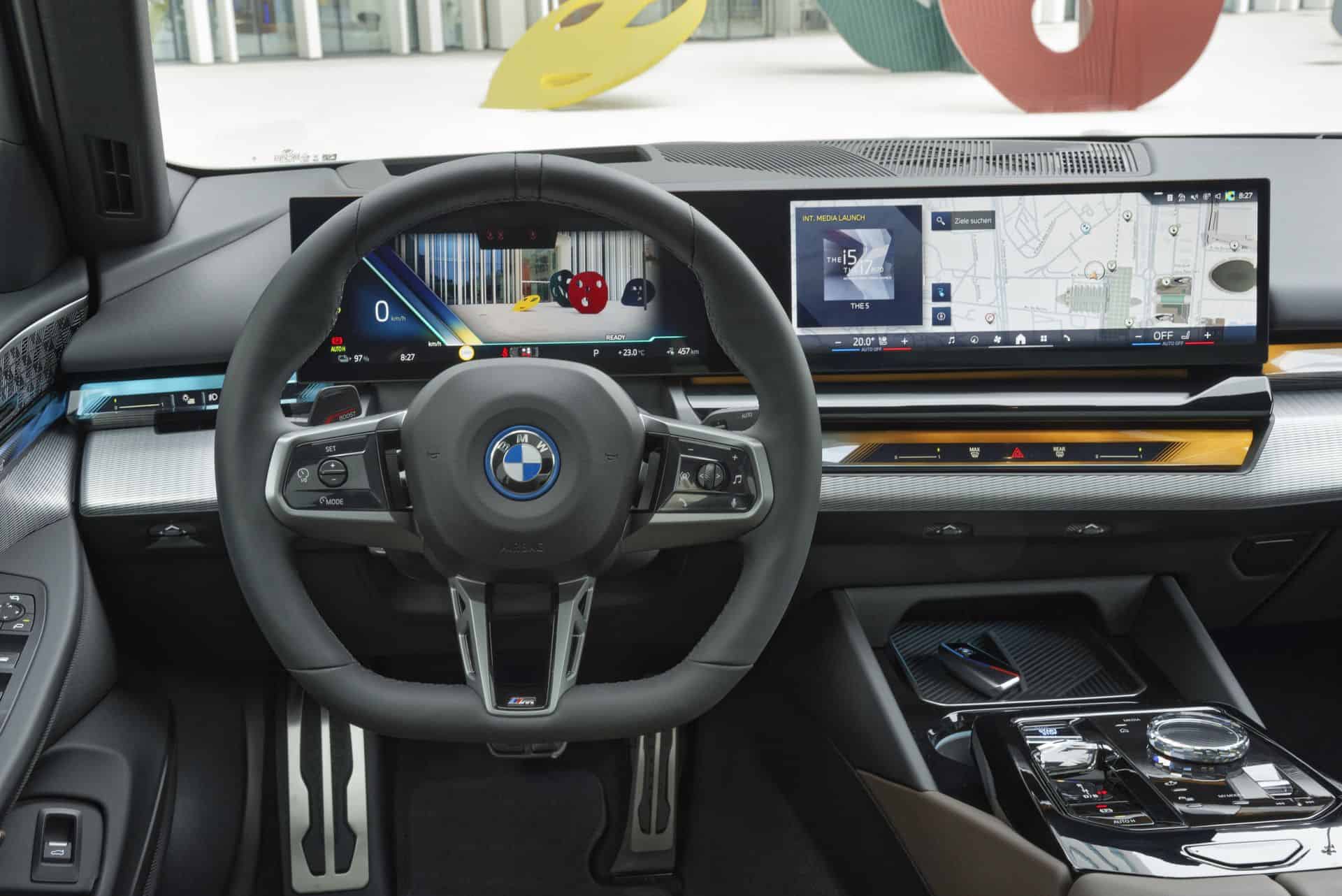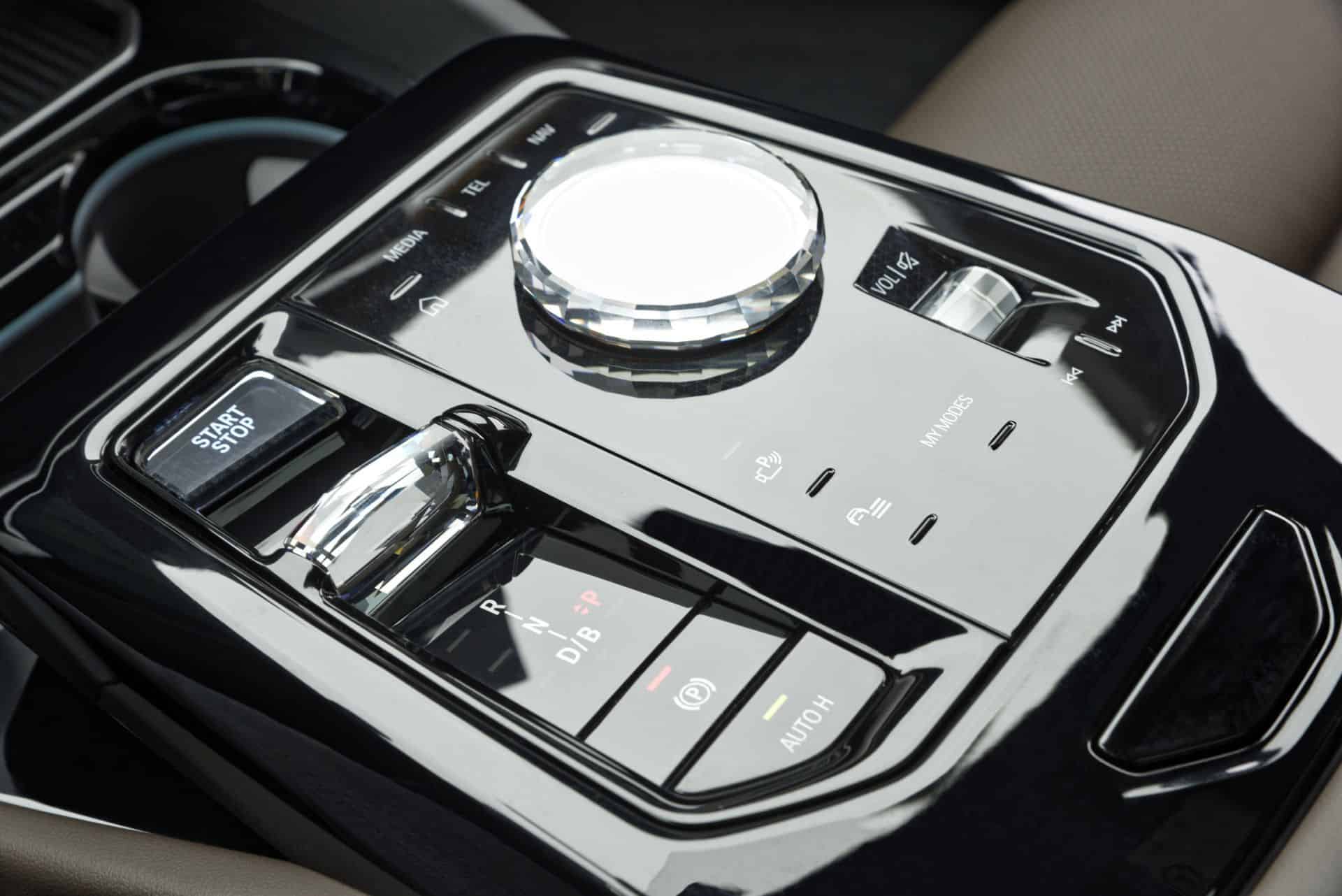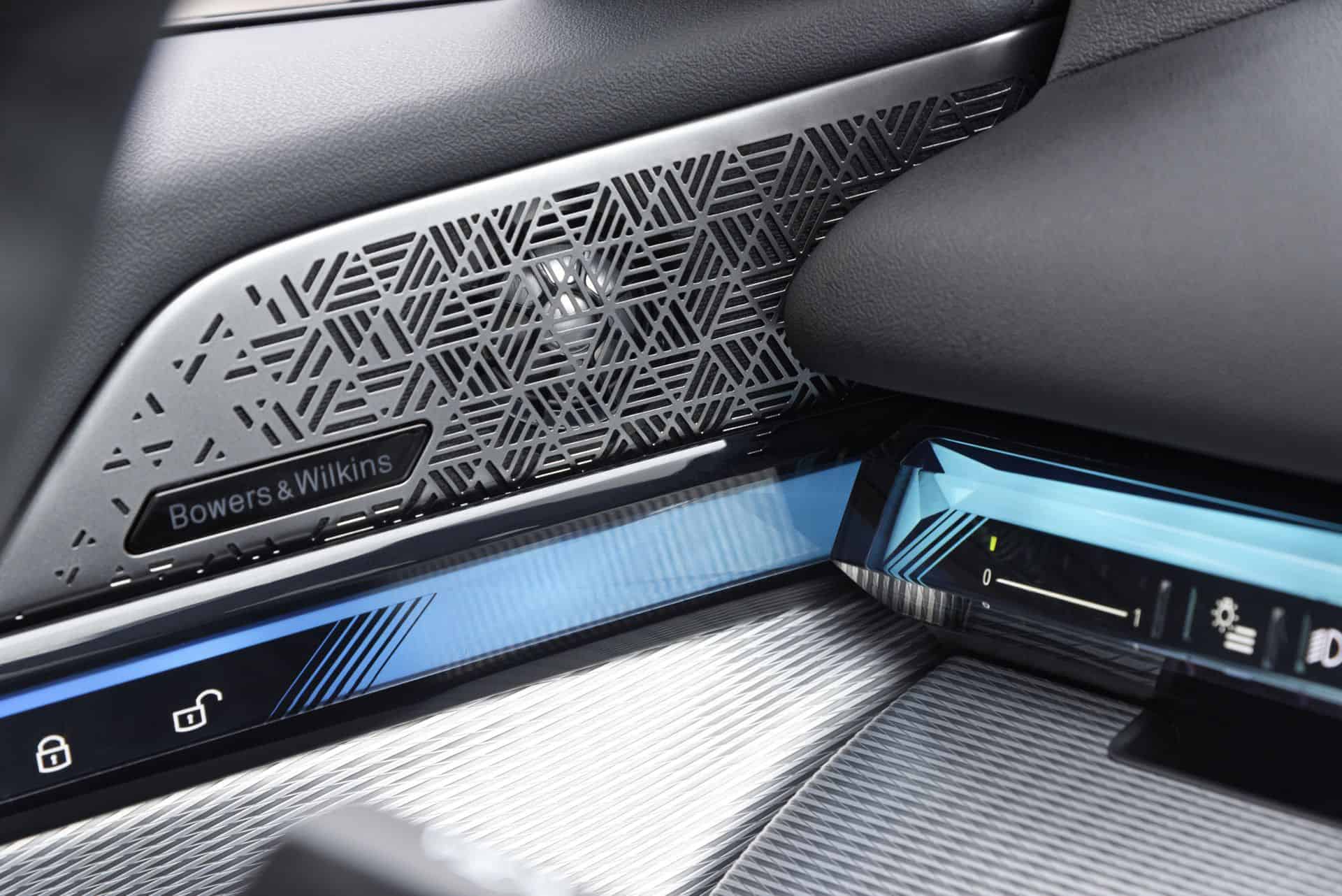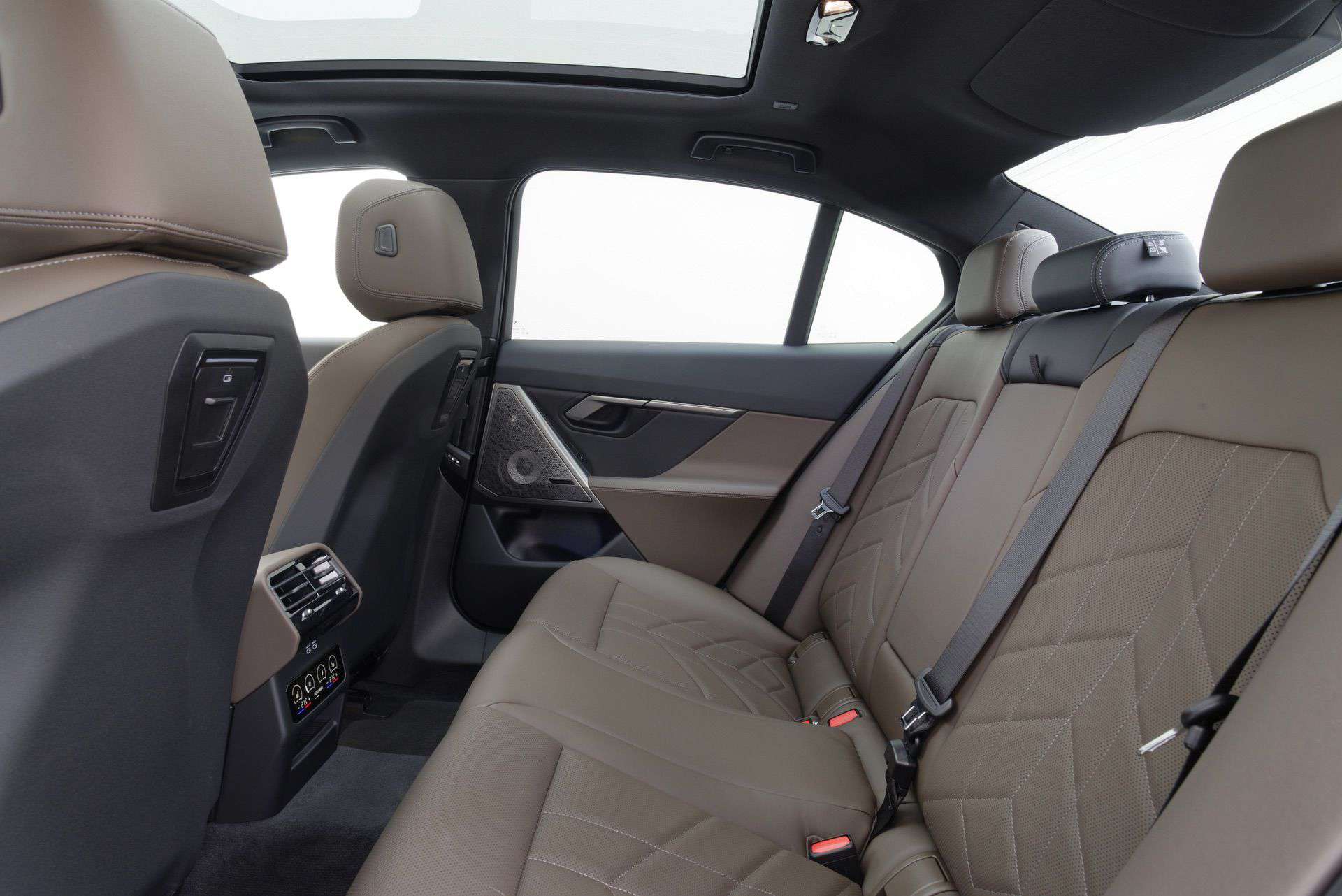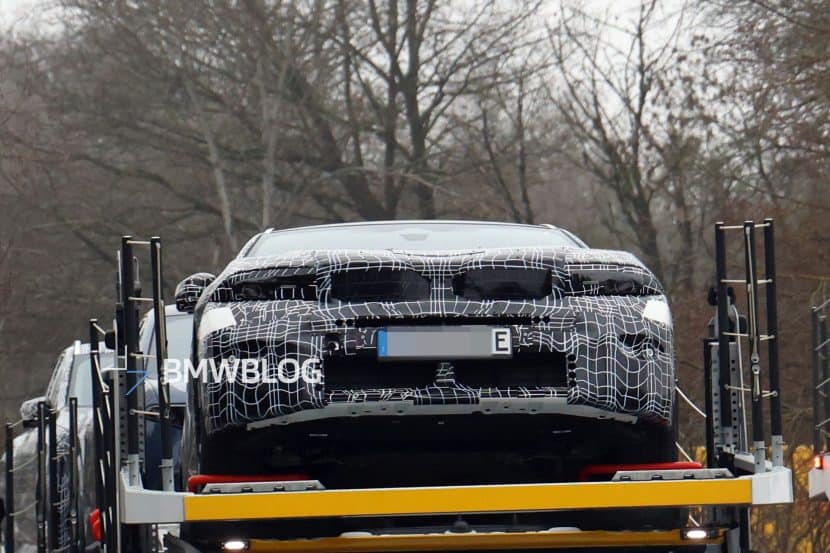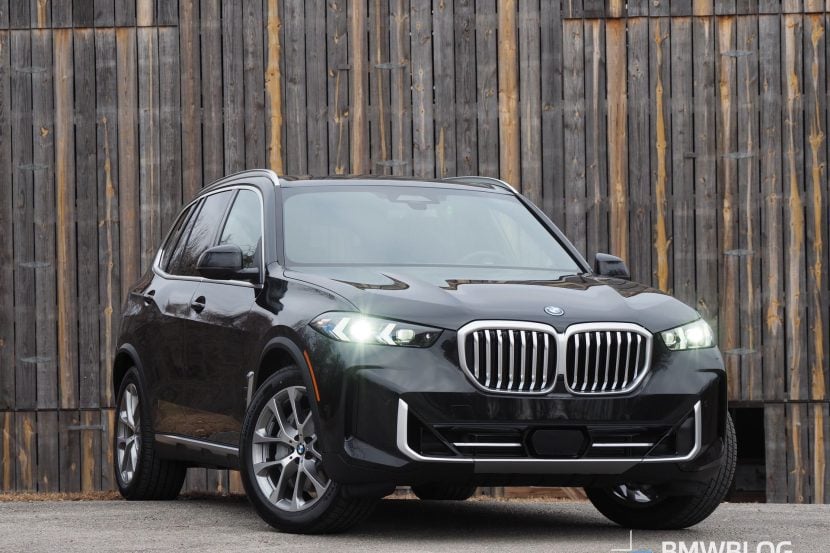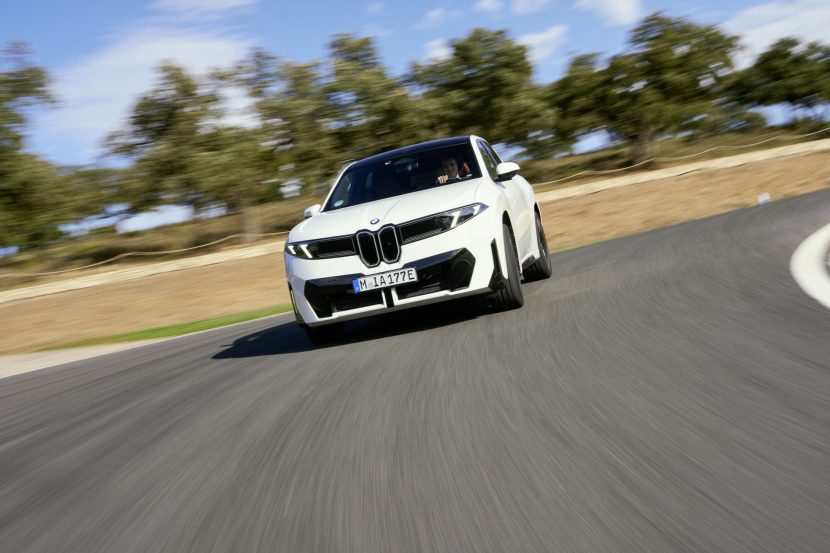The BMW 5 Series has long been the benchmark for business sedans, and its eighth generation brings a significant change with the introduction of the BMW i5 models. Among them, the BMW i5 eDrive40 stands out as the smart choice. I had the privilege of flying to Lisbon to get behind the wheel of this EV, along with its siblings, the i5 M60 and i7 M70, all sharing the same CLAR architecture. The Brooklyn Grey BMW i5 eDrive40 was my ride for the day, and it offered me the freedom to explore its capabilities to the fullest, resulting in an hour long video review.
The BMW i5 is undeniably a sizable vehicle. With a length exceeding five meters, a width of 1.9 meters, and a generous 2.9-meter-long wheelbase, it shares dimensions comparable to those of the E65 7 Series. It’s also heavy – 2130 kb (4695 lbs) DIN empty, no driver. But luckily, it is lighter than the i5 M60 by nearly 200 kgs.
Performance Comparison: BMW i5 eDrive40 vs. i5 M60
Speaking of the comparison between the two, let’s dive into what sets the BMW i5 eDrive40 apart from its M60 counterpart. This model is a single-motor EV, strategically positioned at the rear, delivering 335 hp and 295 lb-ft of torque. However, when you engage Boost Mode, you can tap into an extra 26 hp, giving you a punchy 317 hp with launch control. The result is a brisk 0 to 60 mph time of 5.7 seconds and a top speed of 193 km/h. I used a RaceBox GPS to test the 0-60 mph and the sprint came in at 5.88, granted I was not running on high-performance tires. These figures may not make it a sports car, but they ensure that the i5 eDrive40 is no slouch when it comes to acceleration.
BMW i5 eDrive40
Good
- Good electric range
- Fun to drive thanks to its RWD
- Great suspension
Bad
- Steering a bit too soft
- Heavy
Battery Capacity and Range
One of the most crucial aspects of any electric vehicle is its range, and the i5 eDrive40 comes with an 81.2 kWh usable battery pack (just like the i5 M60), providing an estimated range of 295 miles. There are several charging capabilities. The BMW i5 eDrive40 can replenish its battery quickly when needed, thanks to its 205 kW DC charging capability. In just 30 minutes, you can go from 10% to 80% charge. It’s still not as fast as the 800V architectures, but BMW says peak charging comes in quickly and flattens before dropping.
There are some changes to the curve. The BMW i5 charge curve is a significant improvement over the stepped curve in the iX. One of the most notable benefits of the smooth curve is that it allows the i5 to start charging at full power at higher states of charge (SoC). This is because the battery’s resistance increases as it charges, so reducing the charging power at higher SoC levels helps to prevent overheating. However, the smooth curve allows the i5 to gradually reduce charging power over time instead of in steps, which means that it can still charge at a relatively high rate even at higher SoC levels.
This is particularly beneficial for drivers who need to charge their car quickly, such as on a long road trip. For example, if you plug in your i5 with a 50% SoC, you can expect to charge at a rate of over 205 kW for several minutes. This is why BMW said you can snack charge for 10 minutes and get 156 km of range (WLTP).
For slower, more extended charging, you have the option of 22 kW charging, which takes approximately 4.25 hours on the M60 but is optional on the eDrive40. The standard 11kW capability will charge your i5 eDrive40 in 8.5 hours. The brake regeneration has a max regen capacity of 120 kW due to the single motor. Of course, it offers one-pedal driving in B mode. In D mode, you can switch between an Adaptive state and Low, Medium, and High regen settings, allowing you to customize your regenerative braking experience to suit your preferences. I said it in the i5 M60 xDrive: I’m a fan of the Adaptive mode which works well in most situations. But if you care more about efficiency and don’t get motion sickness, go for the one-pedal mode.
4 Suspension Choices, Rear Air Suspension Optional
The BMW i5 eDrive40 offers a choice when it comes to suspension, with the rear axle air suspension borrowed from the i7, although it’s an optional feature for the eDrive40. I only had the chance to sample the air suspension, so everything I experienced was driven by that. The Adaptive Suspension Professional is one of two optional electronically adjustable suspension systems available, with the other being the M Sport suspension featuring shorter springs. I just wouldn’t get large wheels and tires with the standard or M Sport suspension. For drivers primarily navigating city streets, opting for one of the adaptive suspension setups is advisable because it’s the only way to enjoy rear steering, significantly reducing the turning radius.
Of course, the air suspension in the i5 eDrive enhances both ride comfort and handling by adjusting suspension stiffness and height according to driving conditions, effectively smoothing out uneven loads within the vehicle. And there were plenty of situations where I found myself on uneven roads or cobblestone roads, enough to be impressed by the suspension’s behavior.
I was geeking out with a BMW engineer over a German beer and I learned that to keep the typical RWD behavior, a compression strut connects the rear section and rear axle. It turn, that adds to the chassis’s stiffness and contributes to better overall performance when cornering. There is also a stiffening panel for the front subframe. Speaking of the driving experience on mountain roads, the BMW i5 eDrive40 offers a balanced and composed ride. The single-motor setup at the rear provides ample power, and the weight distribution ensures good stability through corners. While it may not have the same level of performance as the i5 M60, the eDrive40 offers a more sensible and eco-friendly approach to driving.
Driving Experience
In many ways, it was a bit more fun than the brute i5 M60. The rear wheels spun a lot more, allowing for controlled drifts and some smiles on my face.
When driving in Comfort mode, the i5 eDrive40 delivers on the characteristics of a luxury business sedan. It provides comfortable steering feedback and a plush ride that adeptly absorbs the majority of road imperfections. The i5 eDrive40 also boasts an impressive turning radius, making it effortlessly maneuverable on narrow roads. And there were plenty of those around Sintra, a popular town near Lisbon.
Speaking of steering, while the i5 eDrive40’s steering is precise and offers good chassis response, it does lack a bit in terms of road feel. This is a common characteristic in modern BMWs, as electronic steering racks intentionally dampen road feedback, somewhat diminishing the engagement that previous BMW models were known for. Of course, it can be slightly fixed by the Sport Mode, but overall, it’s pretty soulless.
When it comes to body control, the i5 eDrive40 delivers precisely what you’d desire: a balance between precision and freedom that communicates road speed and a seamless sense of flow. The i5 eDrive40 consistently maintained its composure, offering a good driving experience. Don’t be fooled though: you will feel that body roll in the Comfort mode.
Linear and Smooth Power Delivery
In terms of power delivery, the BMW i5 eDrive40 provides a smooth and consistent experience without the abruptness seen in some other electric vehicles. With 335 horsepower, it feel less spirited than the i5 M60, but I find it to be plentiful in most driving situations. Overtaking is pretty effortless, thanks to the Boost Mode and it has enough torque to put you back in the chair.
The brake system is great, but not as great as in the i5 M60. It employs the same brake-by-wire technology, featuring a high-pressure ramp that enhances braking feedback during dynamic driving. Base models come with 17-inch brake discs constructed for lightweight efficiency. Fun fact: in Europe, you have to pay extra for colored calipers.
There is a new driving mode as well. MaxRange offers up to 25% more electric range. However, it comes with certain limitations, including a reduced speed limit of up to 90 km/h, decreased engine power, and reduced seat and steering heating, as well as ventilation in the car. It’s a trade-off for those who prioritize extending their electric range over other driving comforts. I tested briefly and it really does what it says. But will need to test the 25% extra range theory in a future drive.
iDrive 8.5 Standard
iDrive 8.5 is now part of the BMW i5 models. While I still hate the lack of physical buttons, I have to admit that the new UI somewhat fixes my biggest pet peeve of iDrive 8: the AC controls. It is a bit more intuitive and faster to adjust the heating and cooling, but still not as effortless as actual dedicated buttons and/or switches. While the AirConsole gaming and Bundesliga apps may seem like gimmicks at first glance, I can see their usefulness in specific scenarios. For instance, I found them to be quite handy when I needed to pass the time while waiting for someone to drop off a car for me.
Level 2 Hands-Free up to 130 km/h
I’ve talked about ADAS (Advanced driver-assistance systems) in my i5 M60 review, but here is a synopsis. All new BMW 5 Series and i5 models come with Level 2+ autonomous driving. But don’t include that “+” around BMW engineers. They prefer it to be called either the Highway Assistant or Level 2 Hands Free. There is also a new feature which might seem gimmicky at first, but useful in the end: Automatic Lane Change. Essentially, this a fancy name for changing lanes by simply shifting your head to the left or right, in order to confirm the lane change prompt. You can see it in the video below how it works and what it does. Let me not forget the 130 km/h hands-free driving feature which is extremely useful during long and boring road trips.
Better choice than the i5 M60?
In conclusion, the BMW i5 eDrive40 makes a compelling case for those looking to embrace electric mobility without sacrificing the essence of a BMW sedan. Its combination of decent power, impressive range, and quick charging capability makes it a practical choice for everyday use. Whether you’re commuting to the office or embarking on a road trip, the i5 eDrive40 has you covered with style and sustainability.
Could it have been improved? Absolutely. There are those who might contend that the exterior design falls short of expectations. Additionally, criticism is granted regarding the transmission tunnel, which, in the context of an electric car, seems unnecessary and encroaches on valuable interior space.
I think the BMW i5 eDrive40 and the upcoming i5 eDrive xDrive will be the most popular 5 Series models. While the i4 M50 dominates the sales in the 4 Series category, the range of the i5 M60 will probably stop it from becoming a top seller. While I enjoyed the near 600 horsepower beast, I found myself being content with the 335 hp, yet playful eDrive40.
The starting price for the base i5 eDrive40 is $67,795, including $995 for destination. In comparison, the Mercedes-Benz EQE 350+ starts at $76,050 and the Tesla Model S at $76,380.


